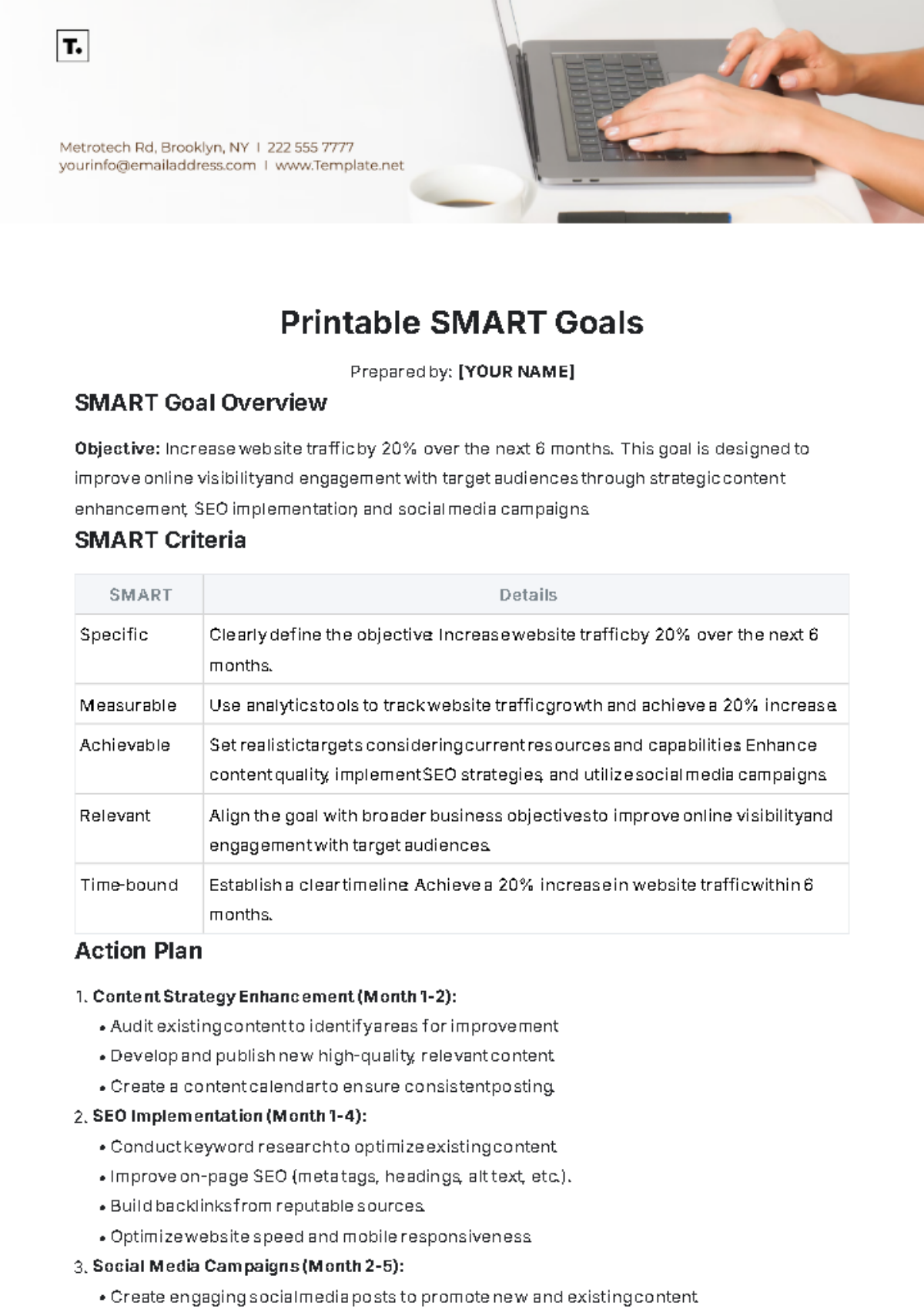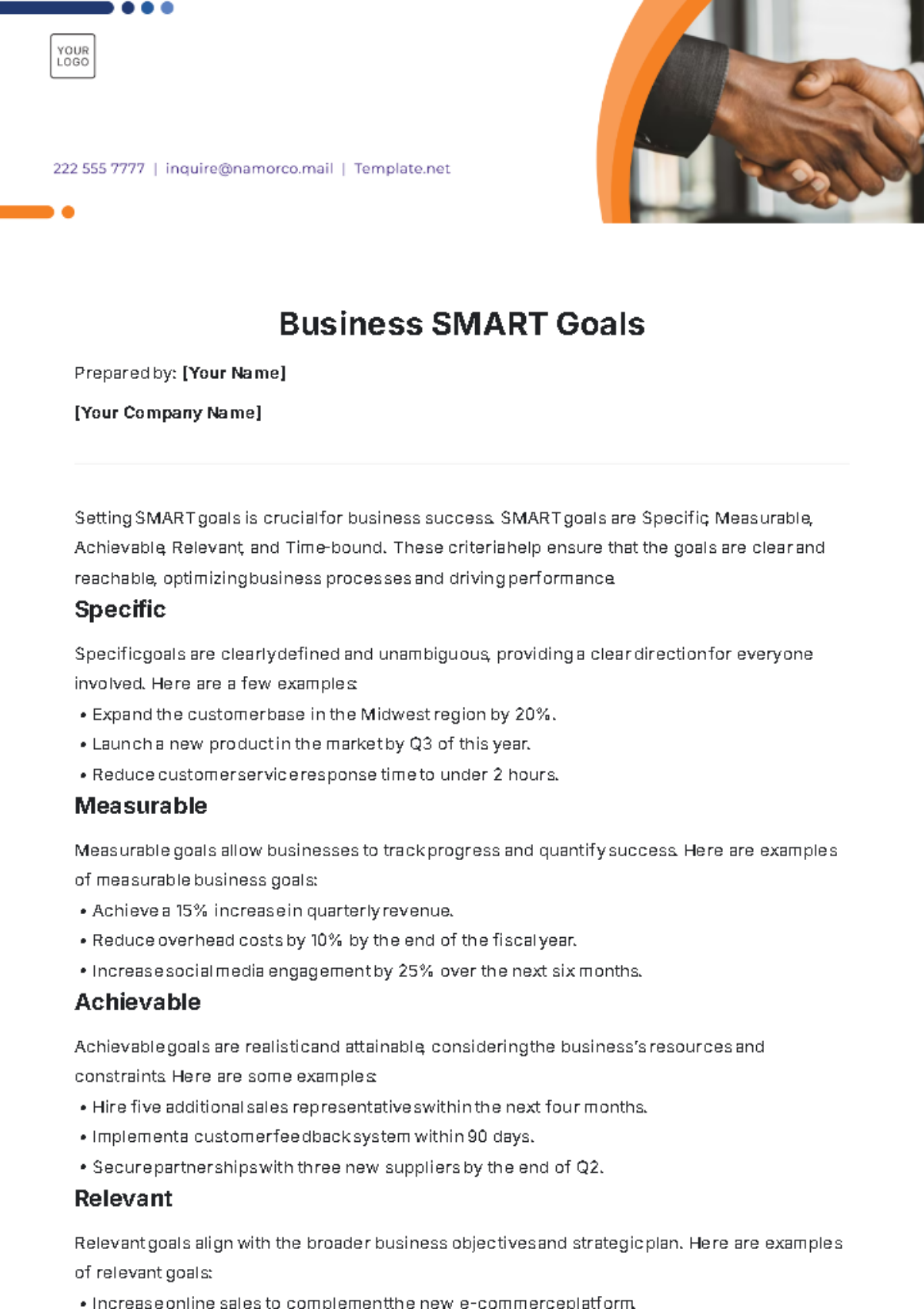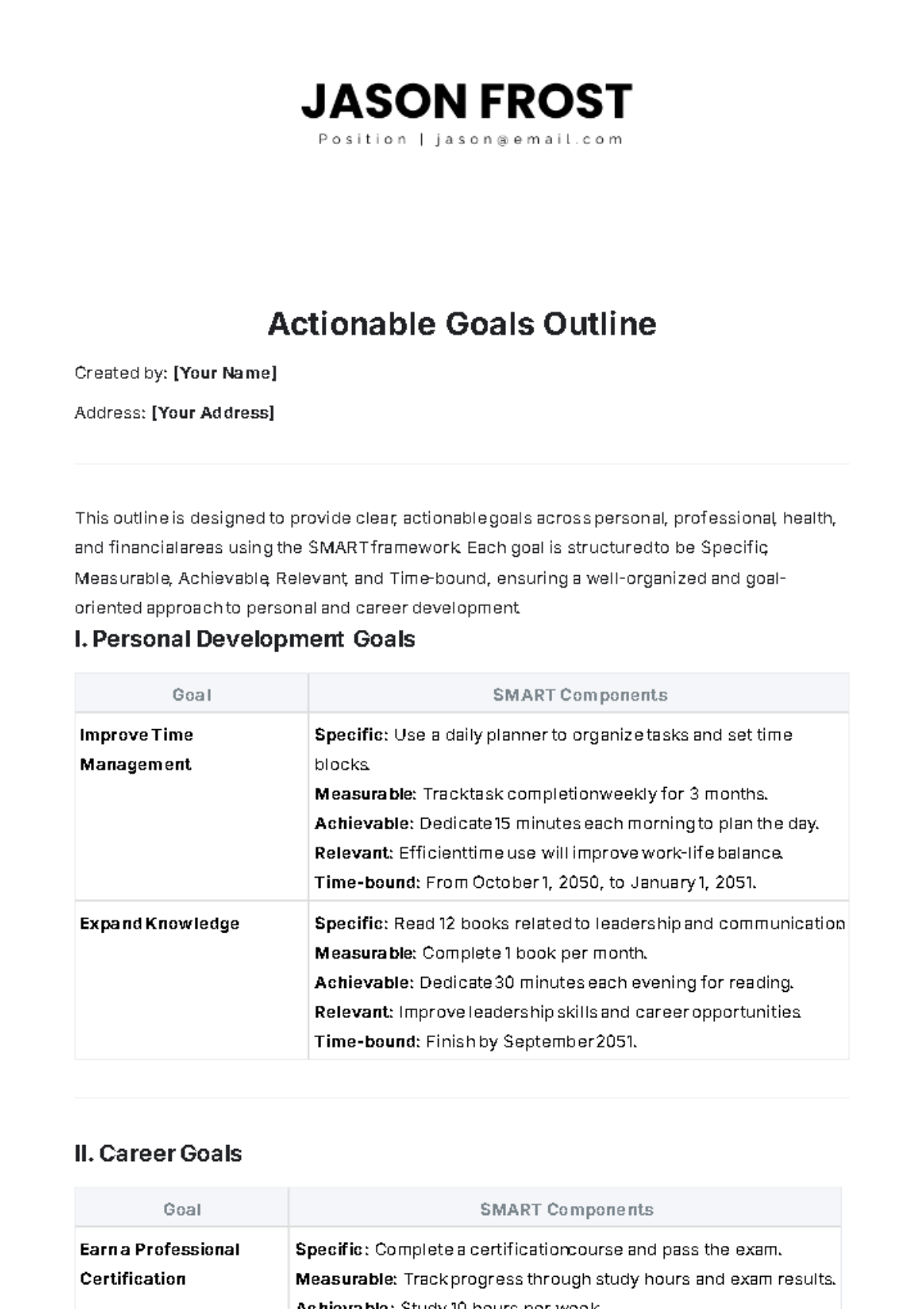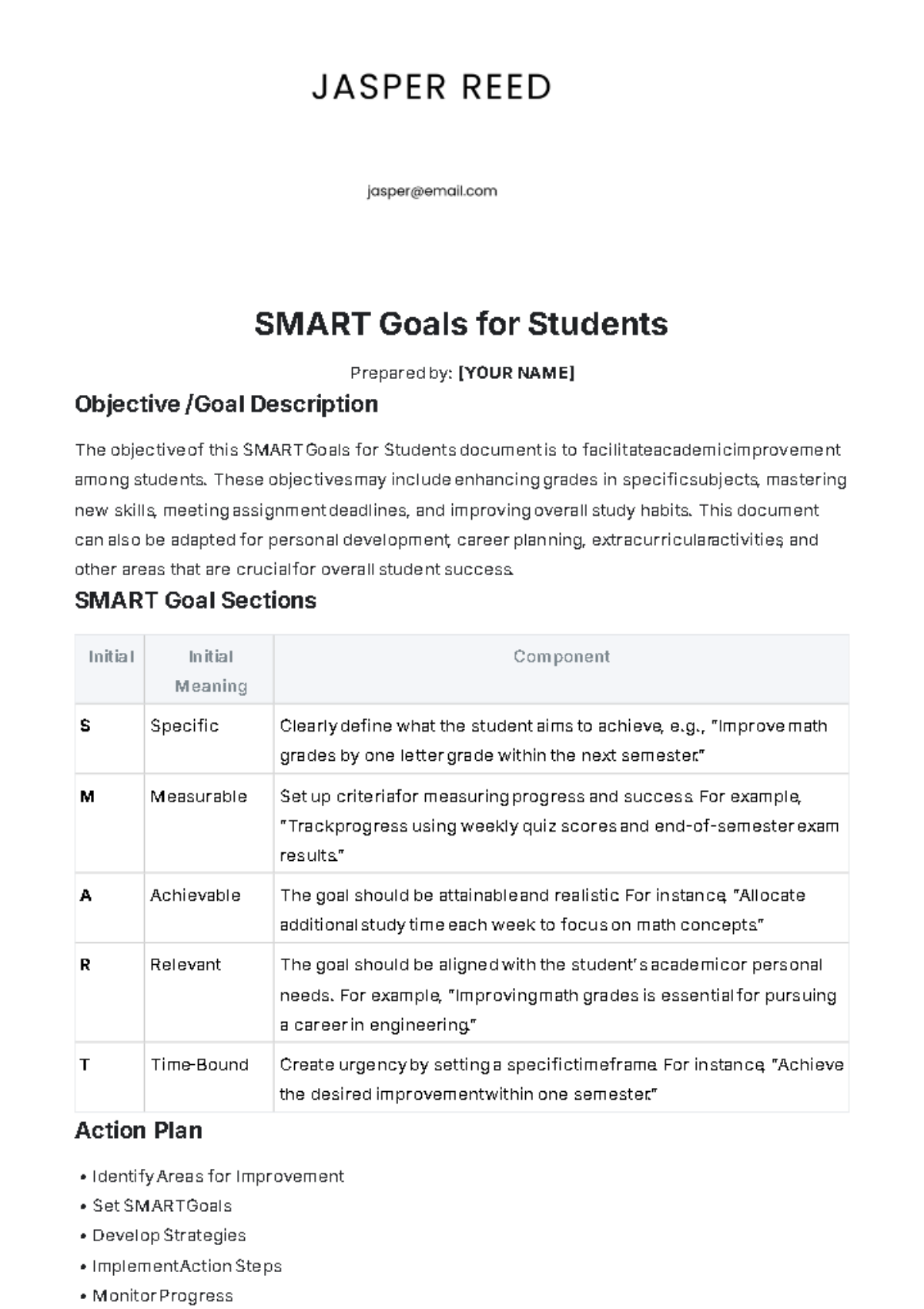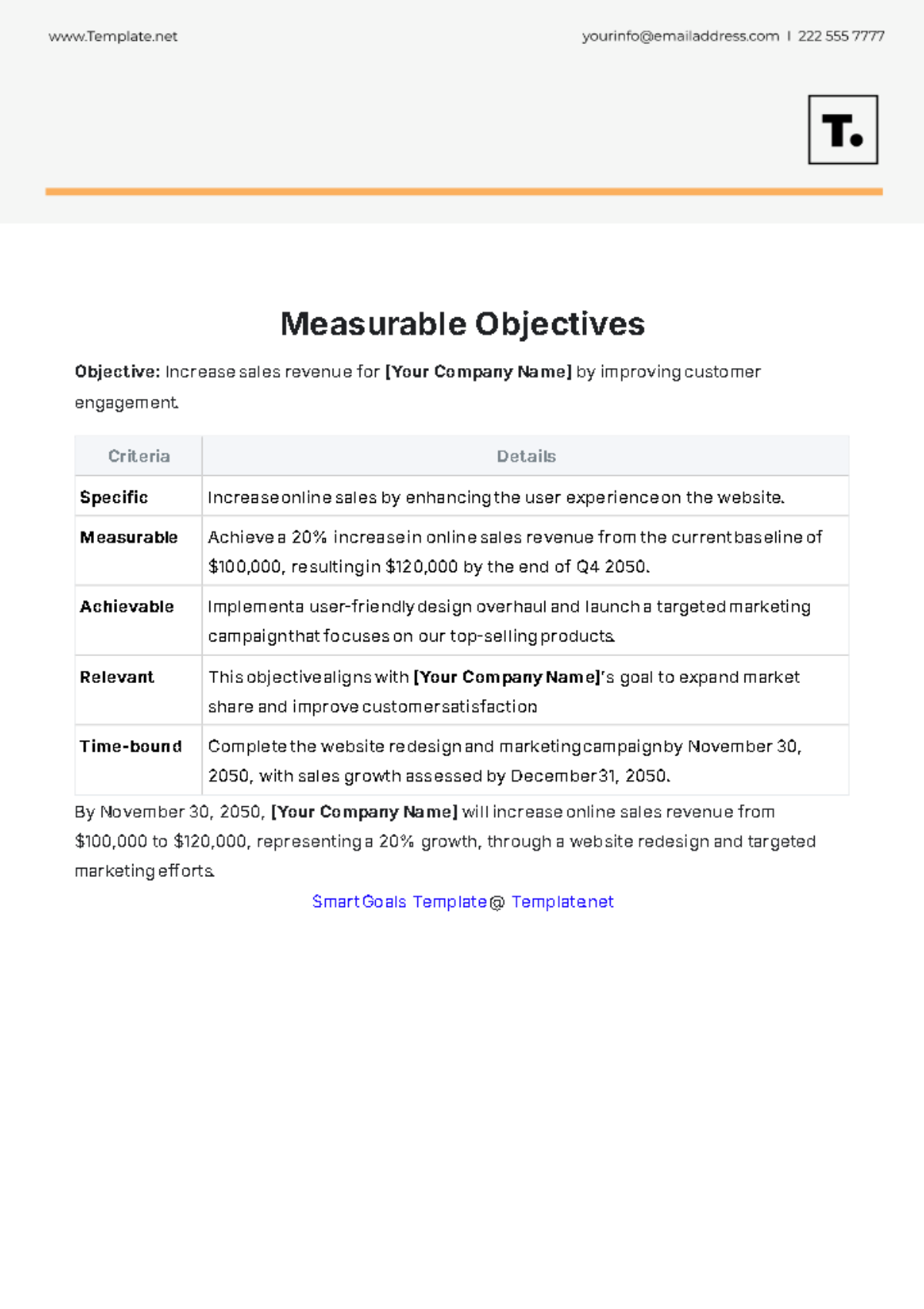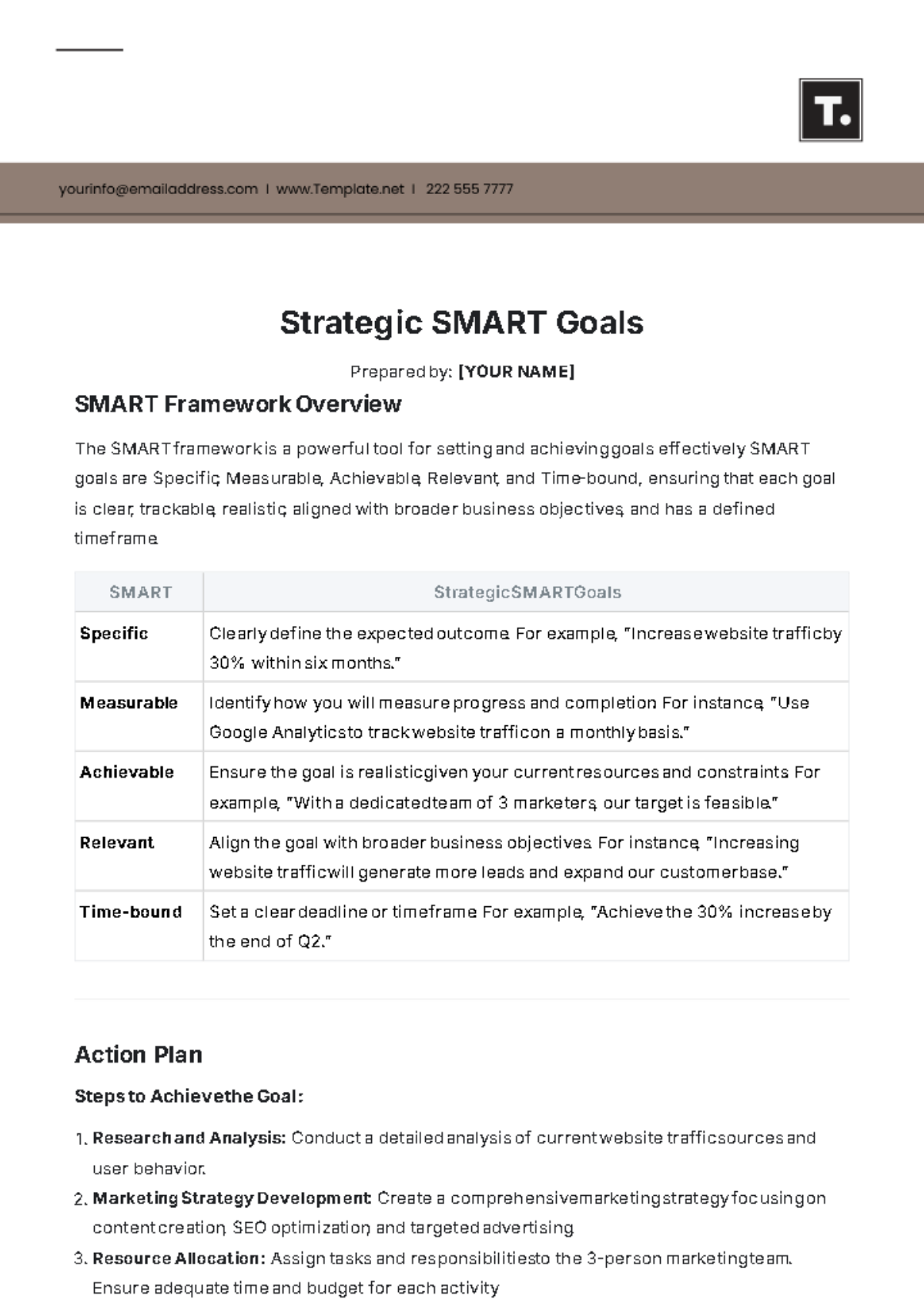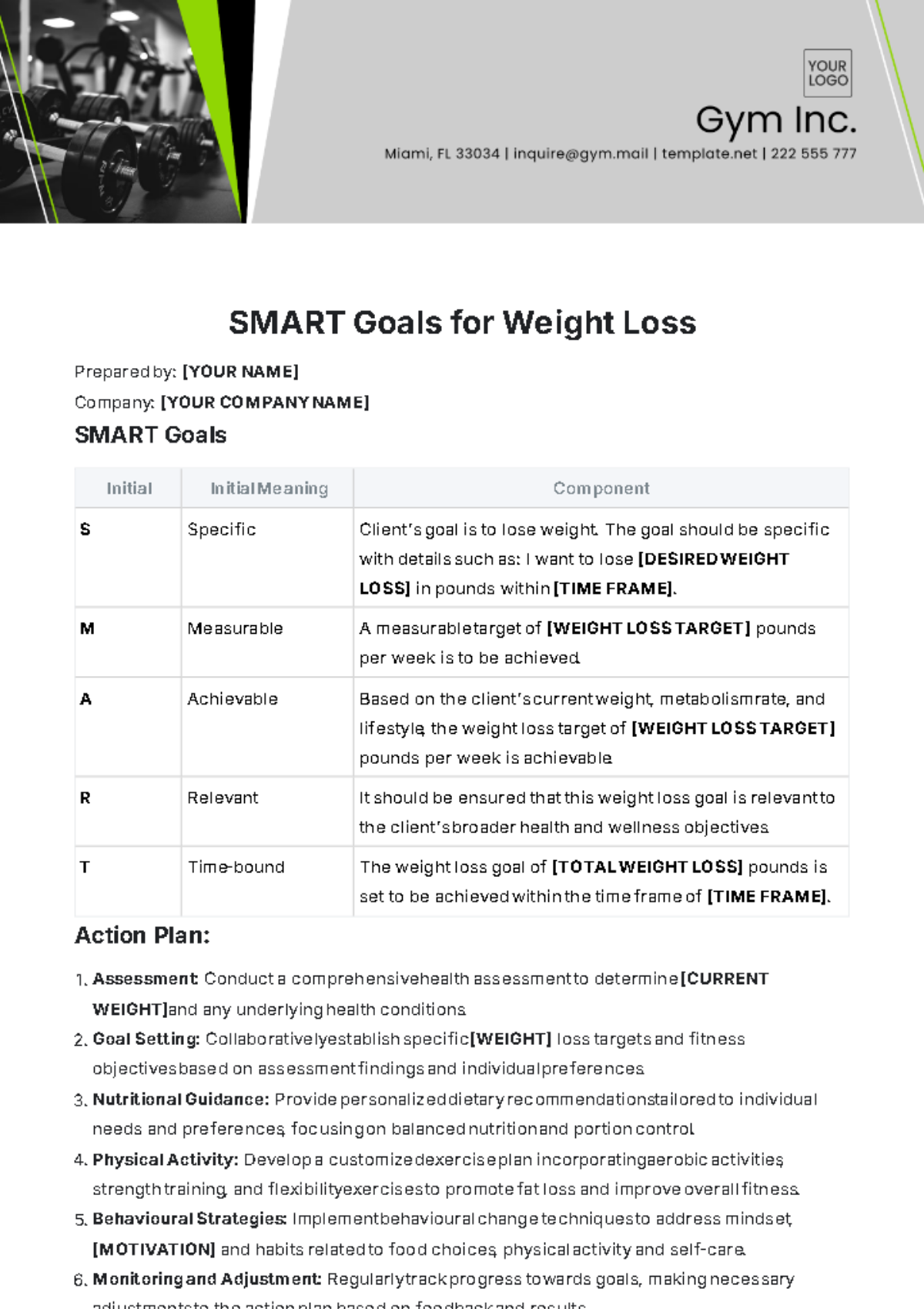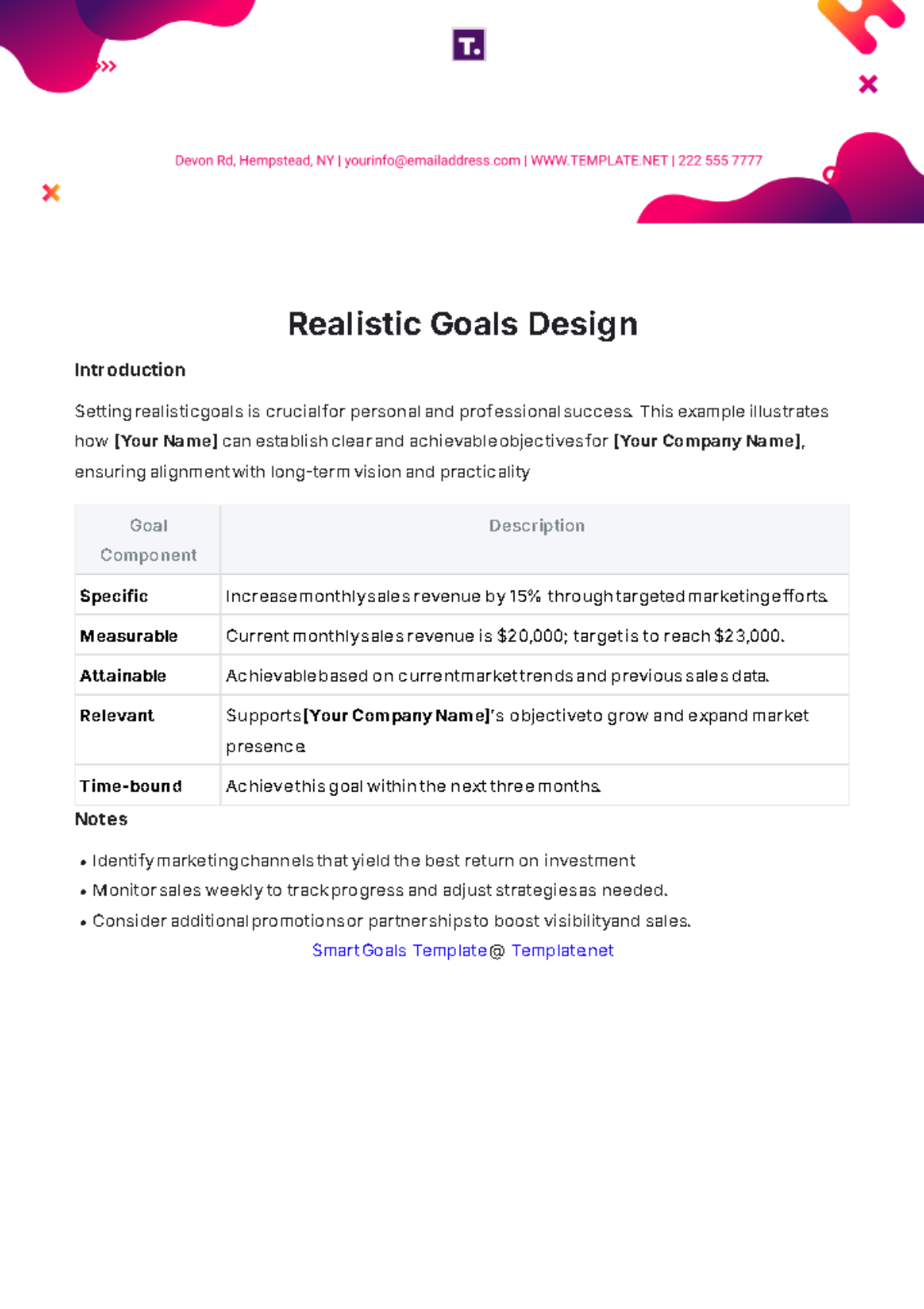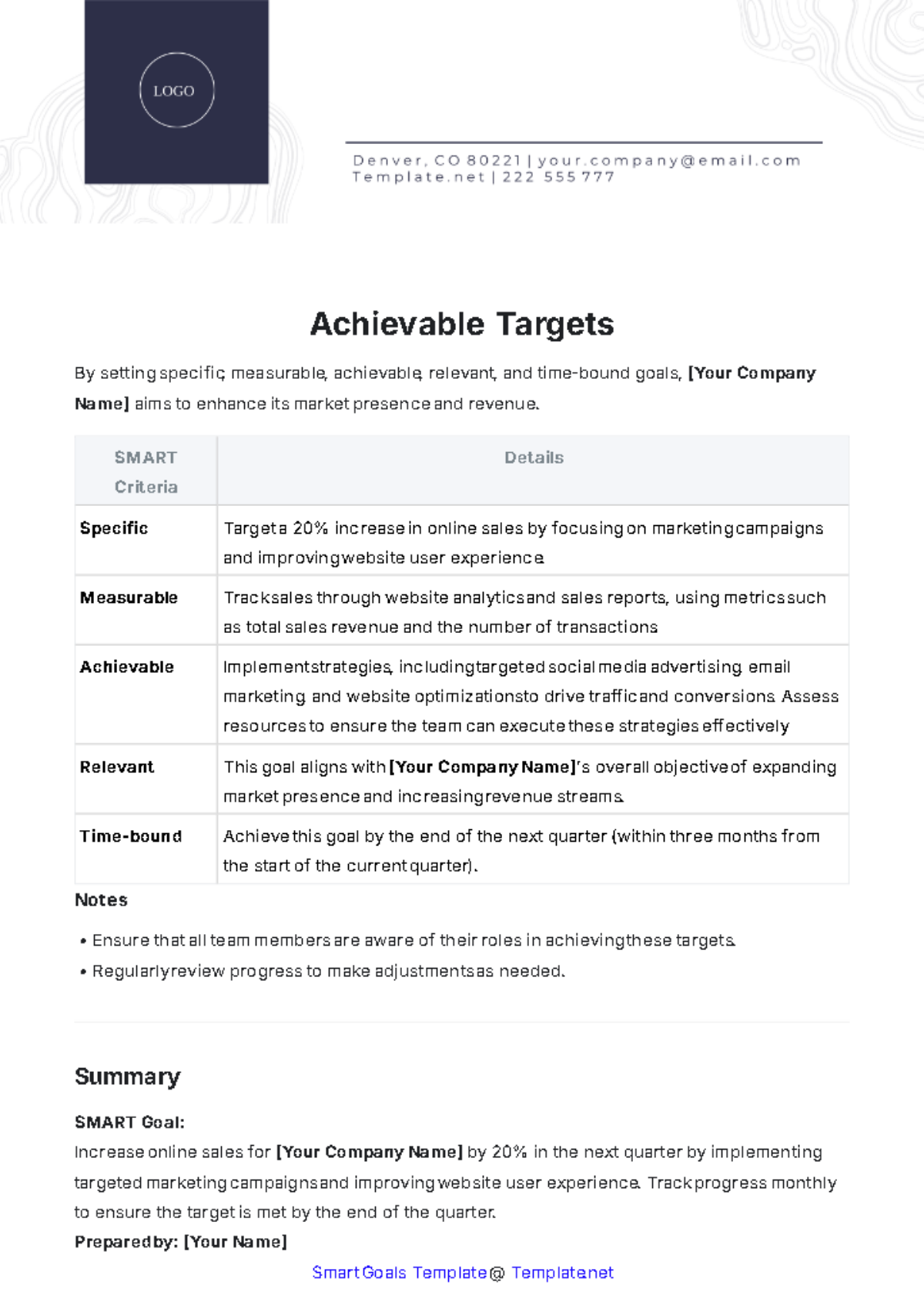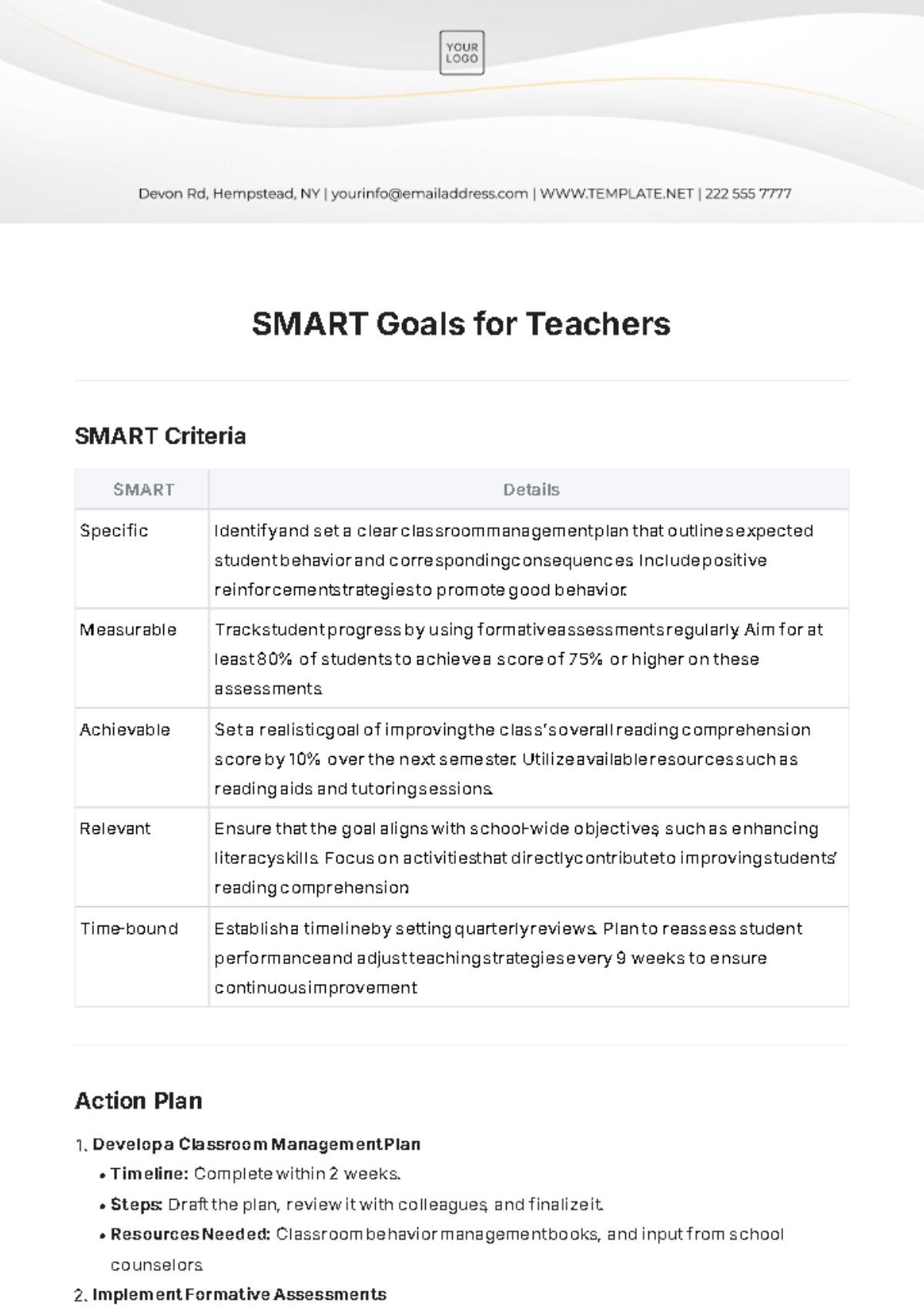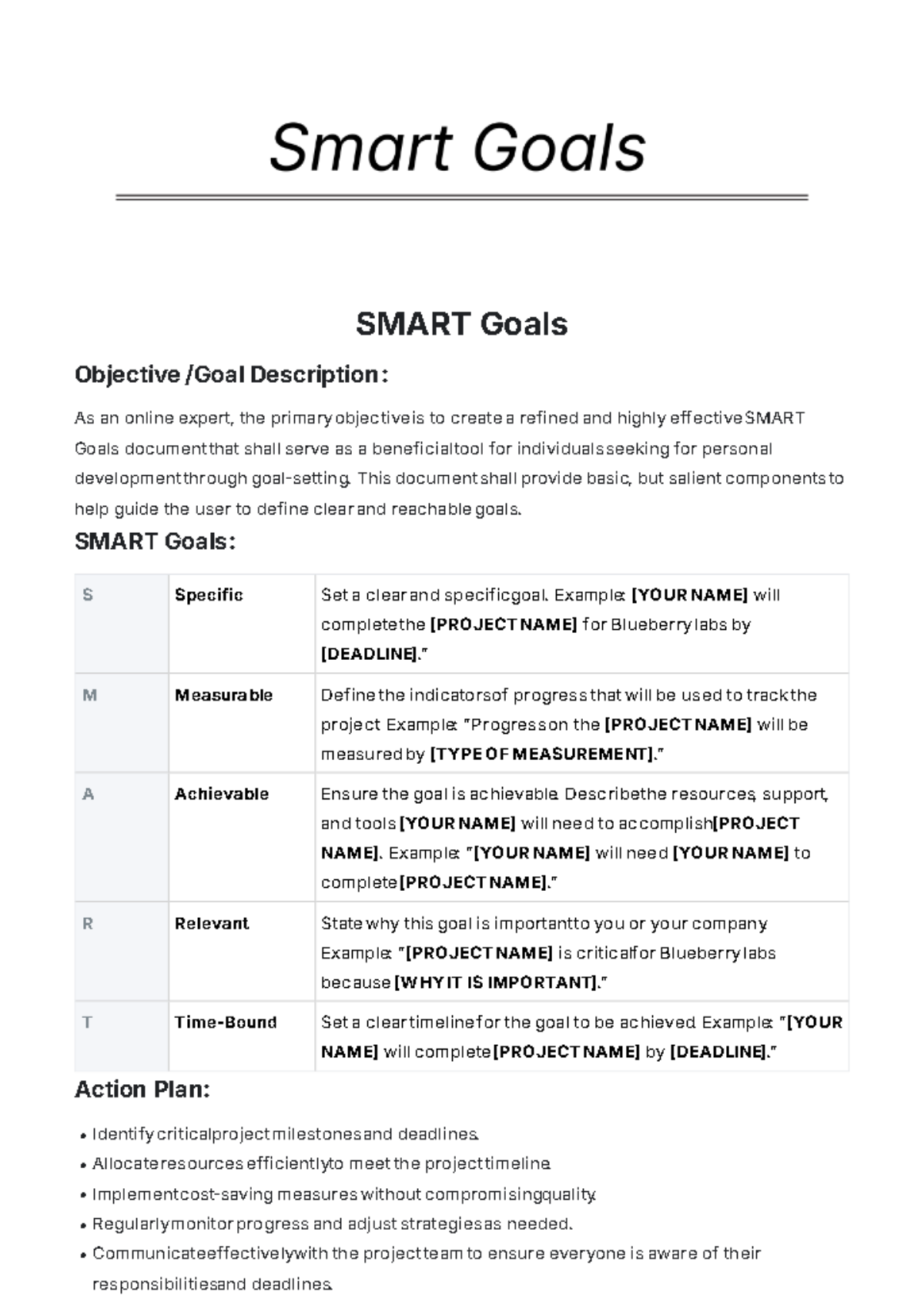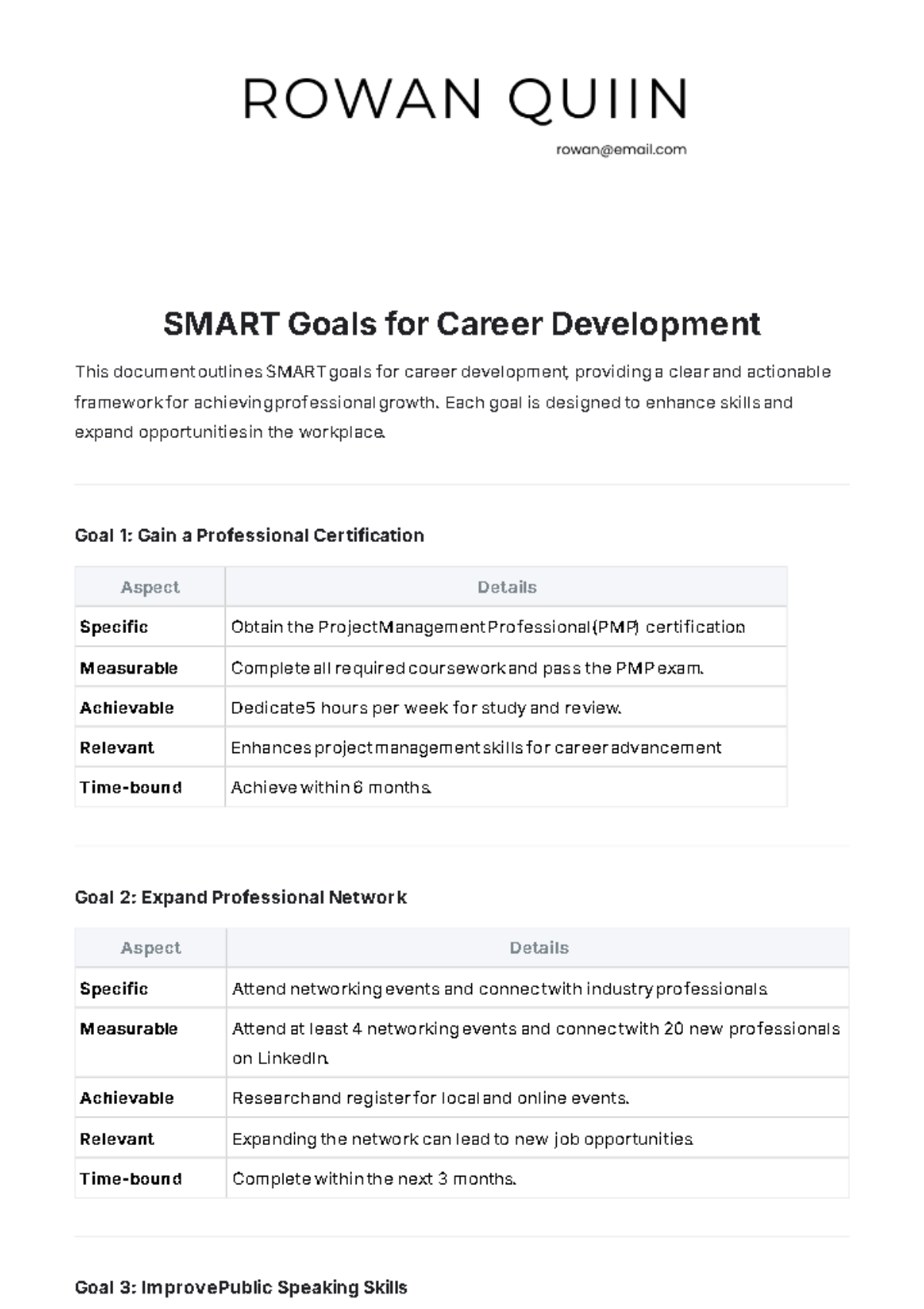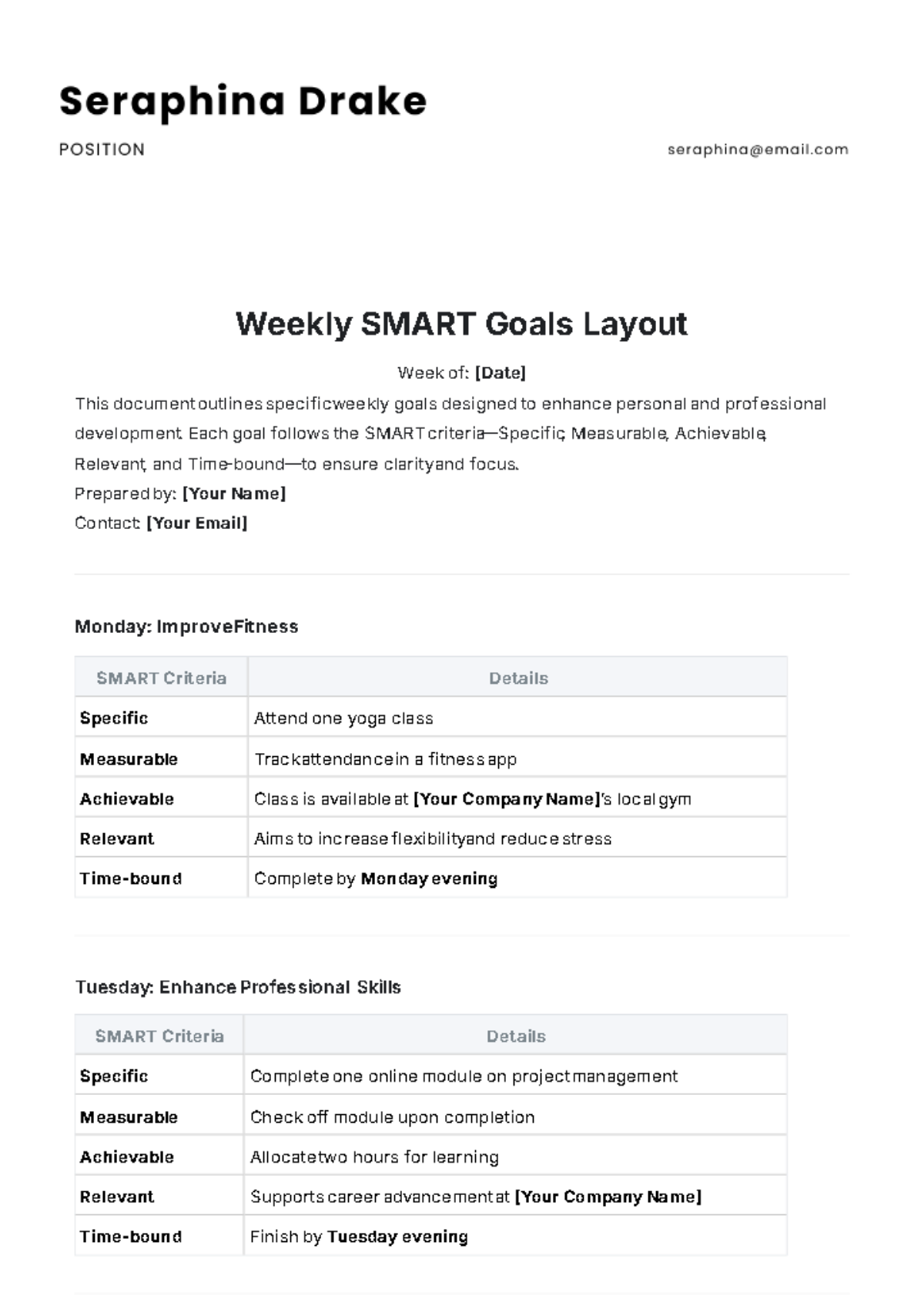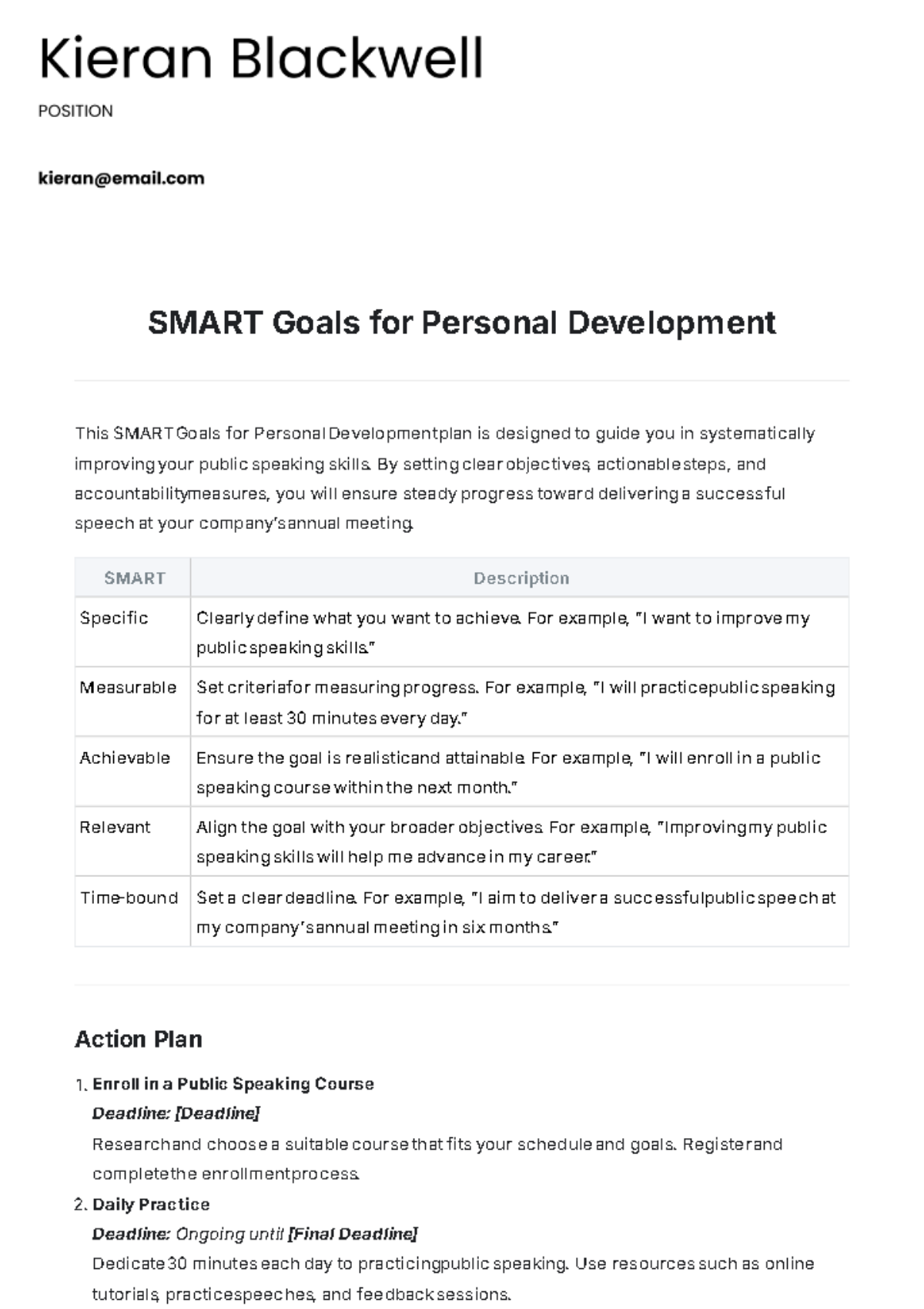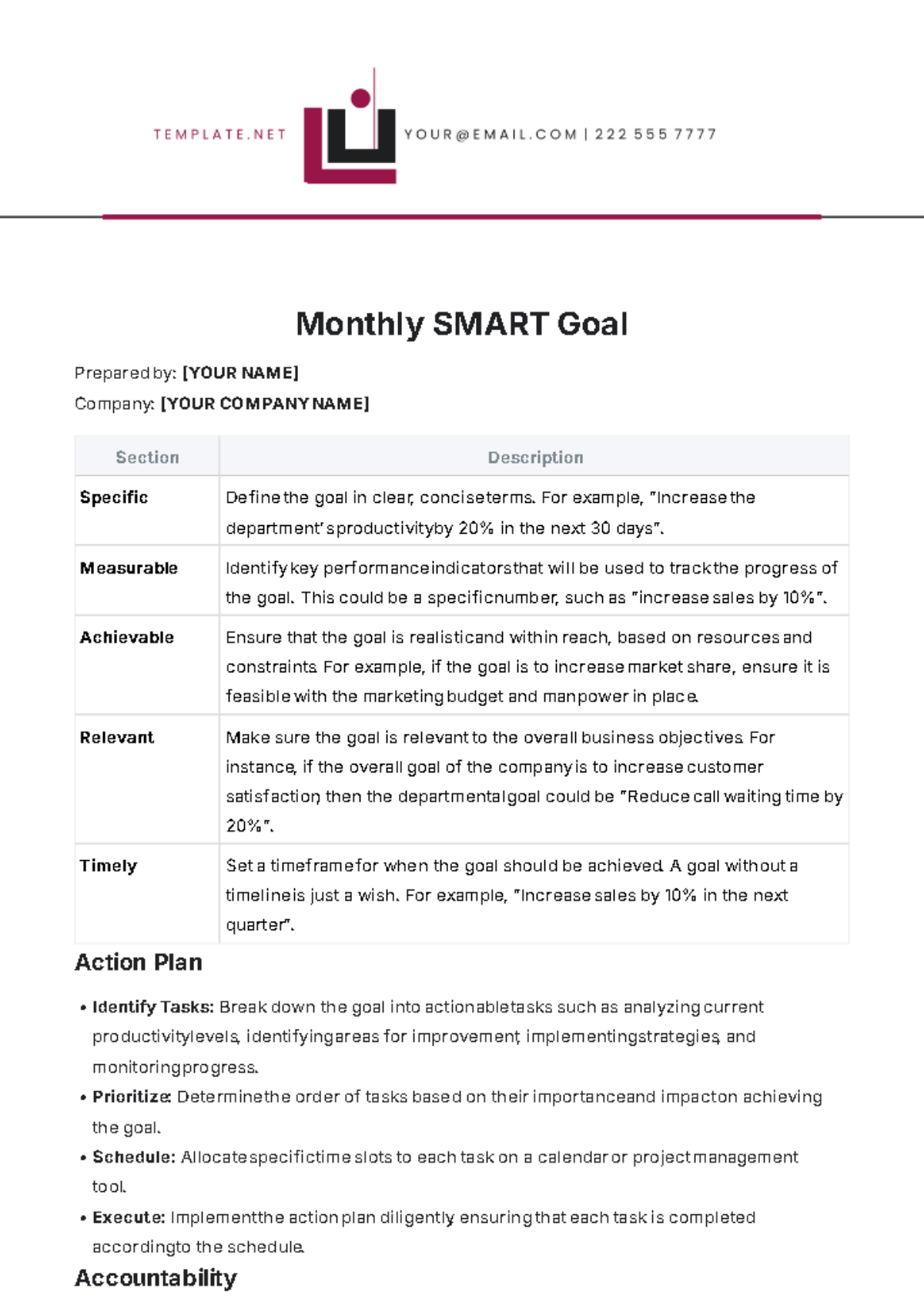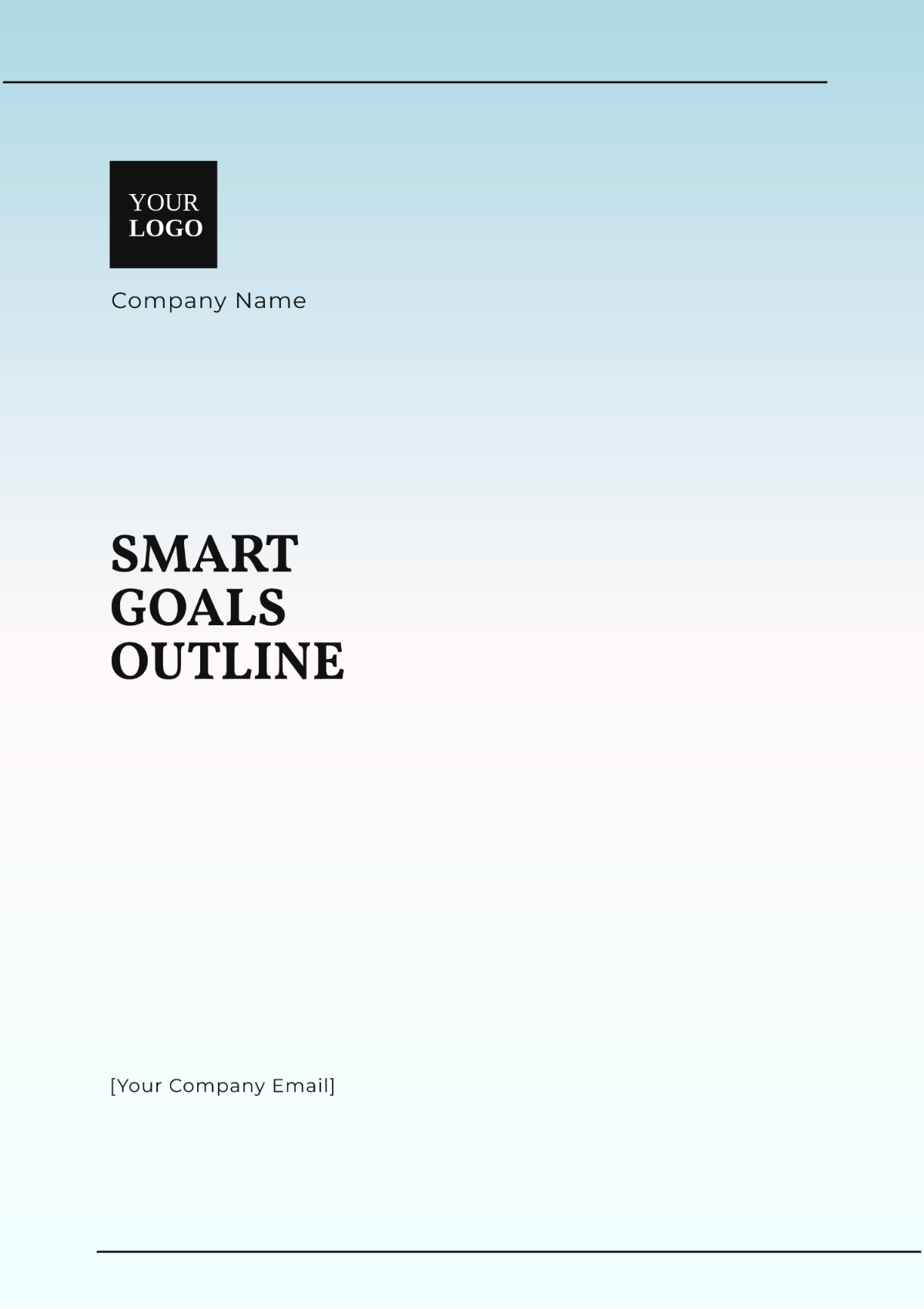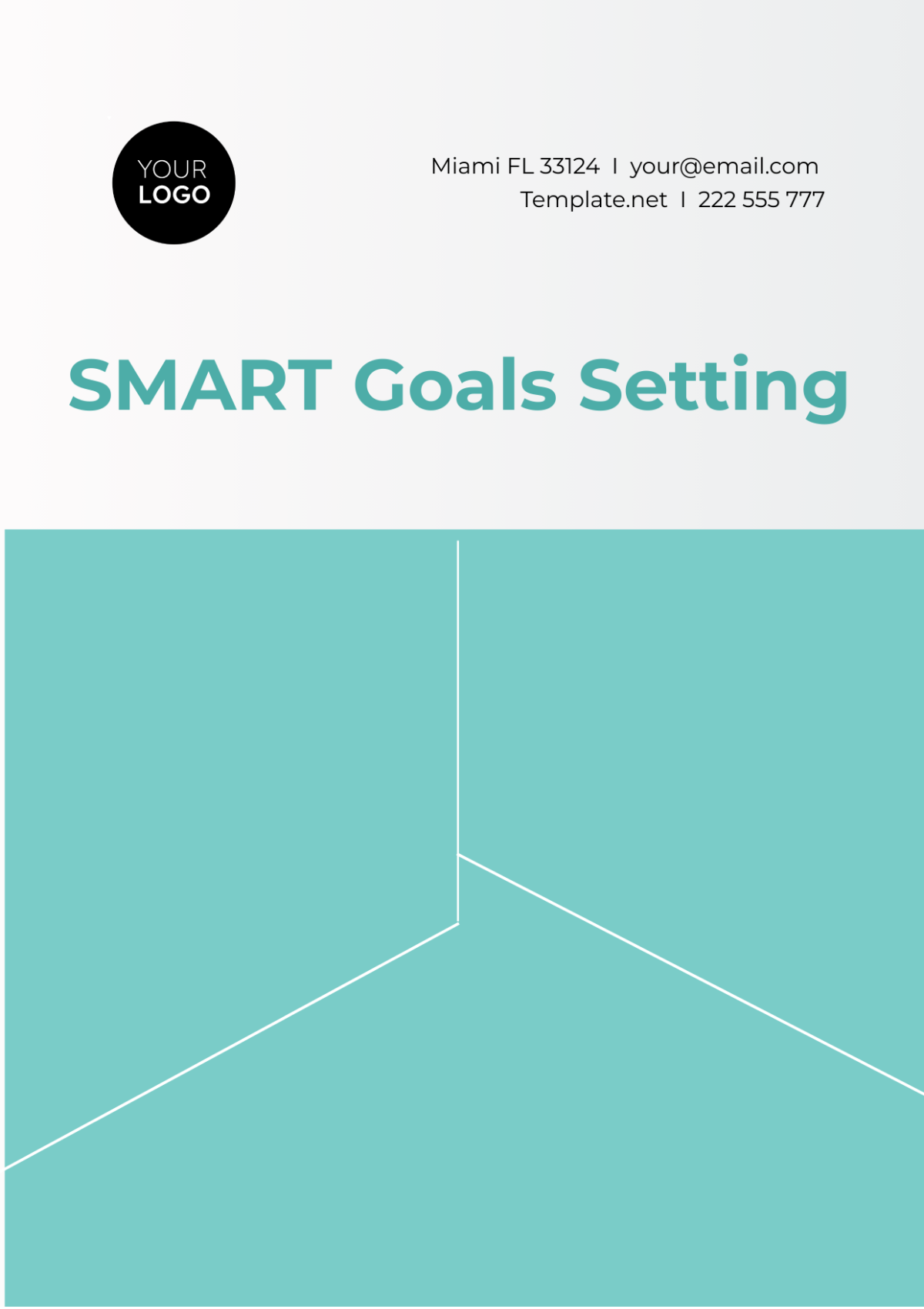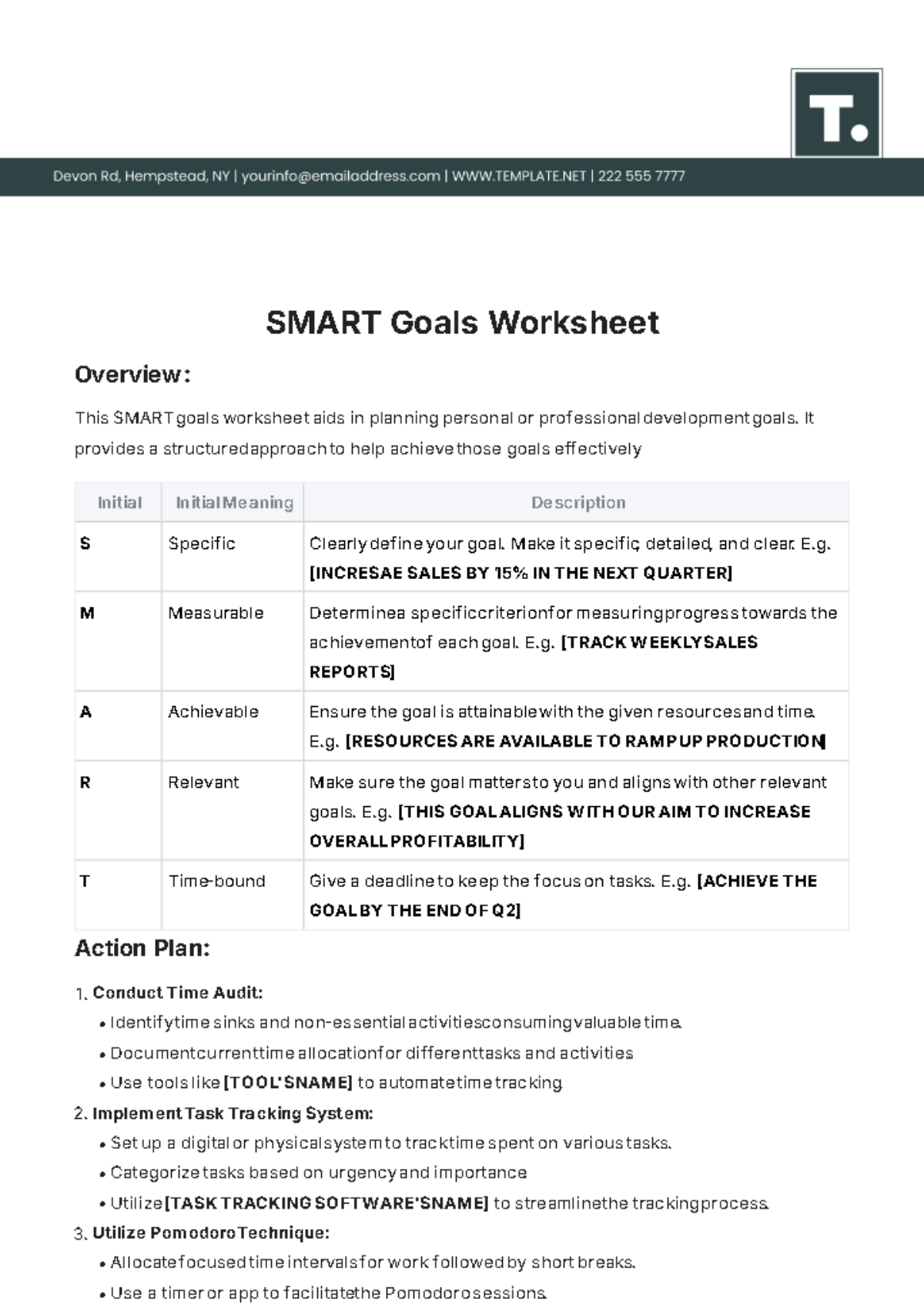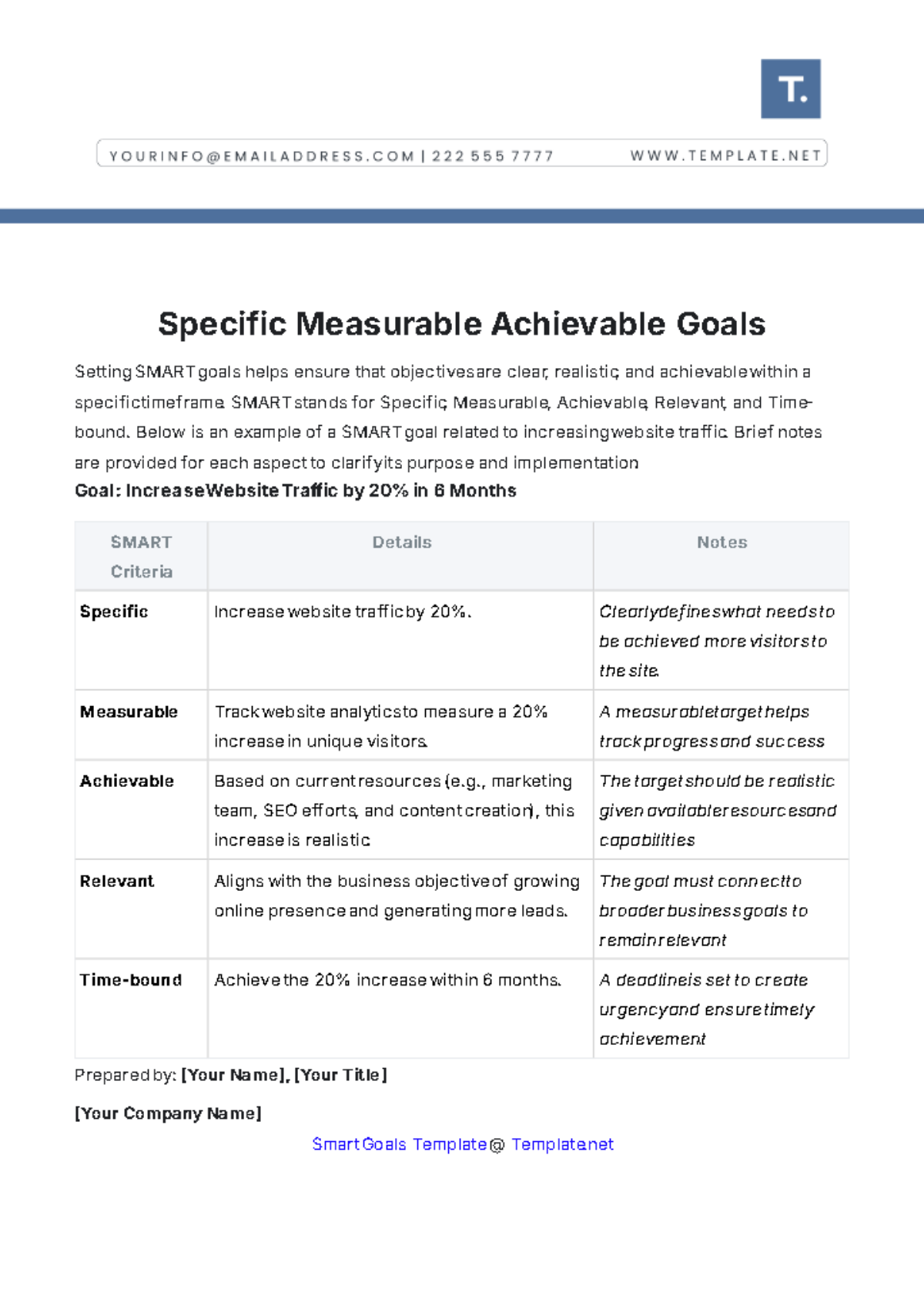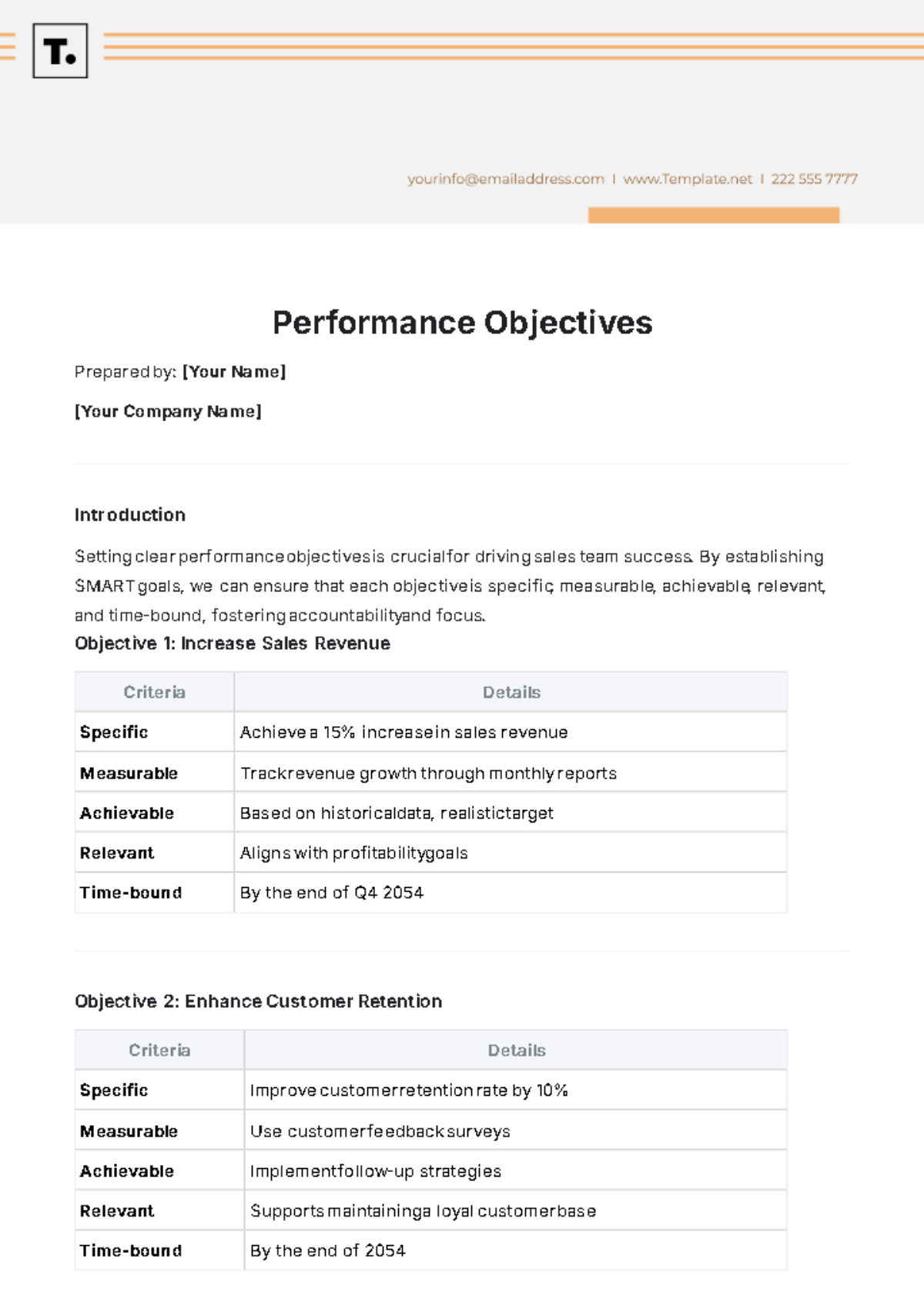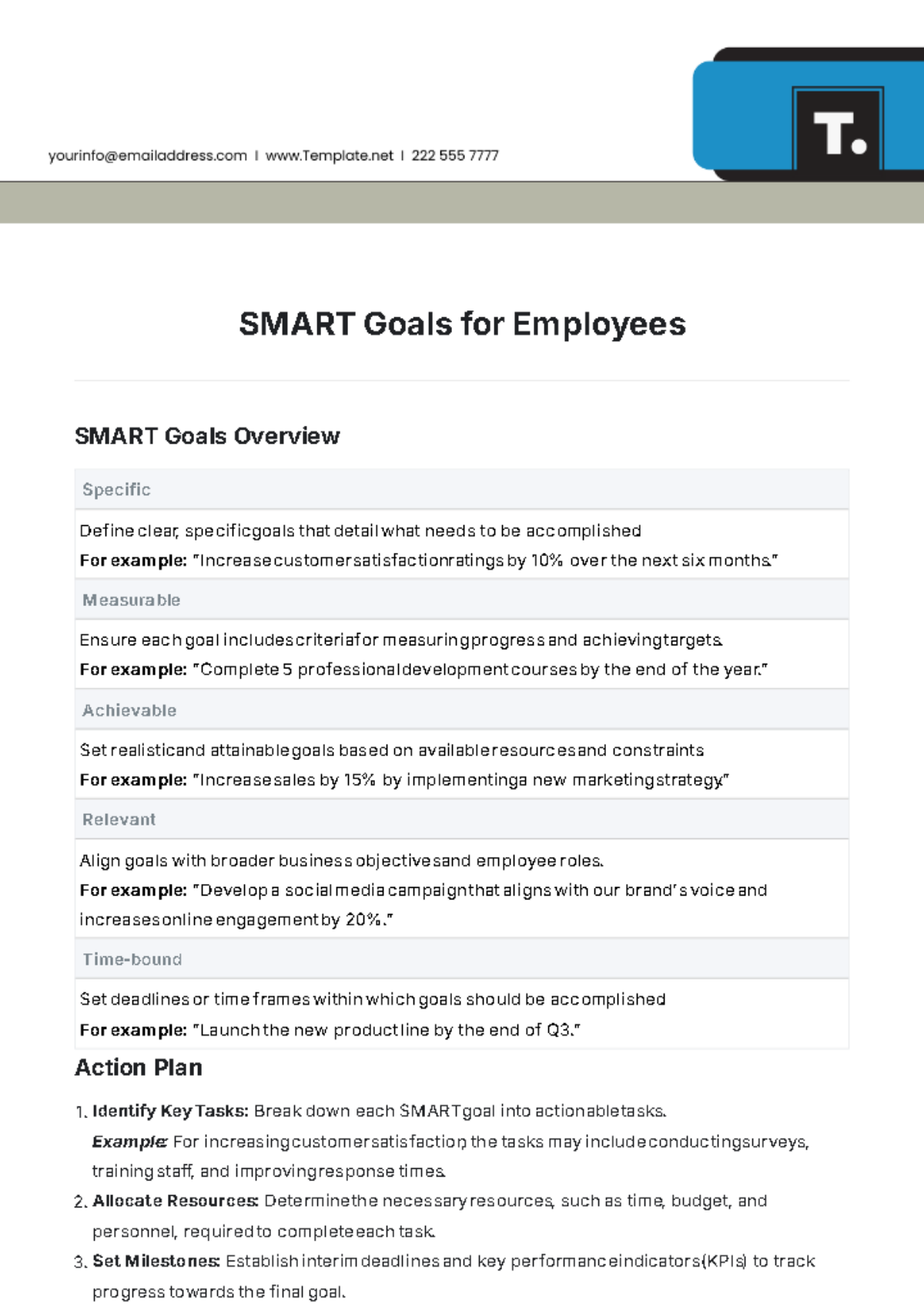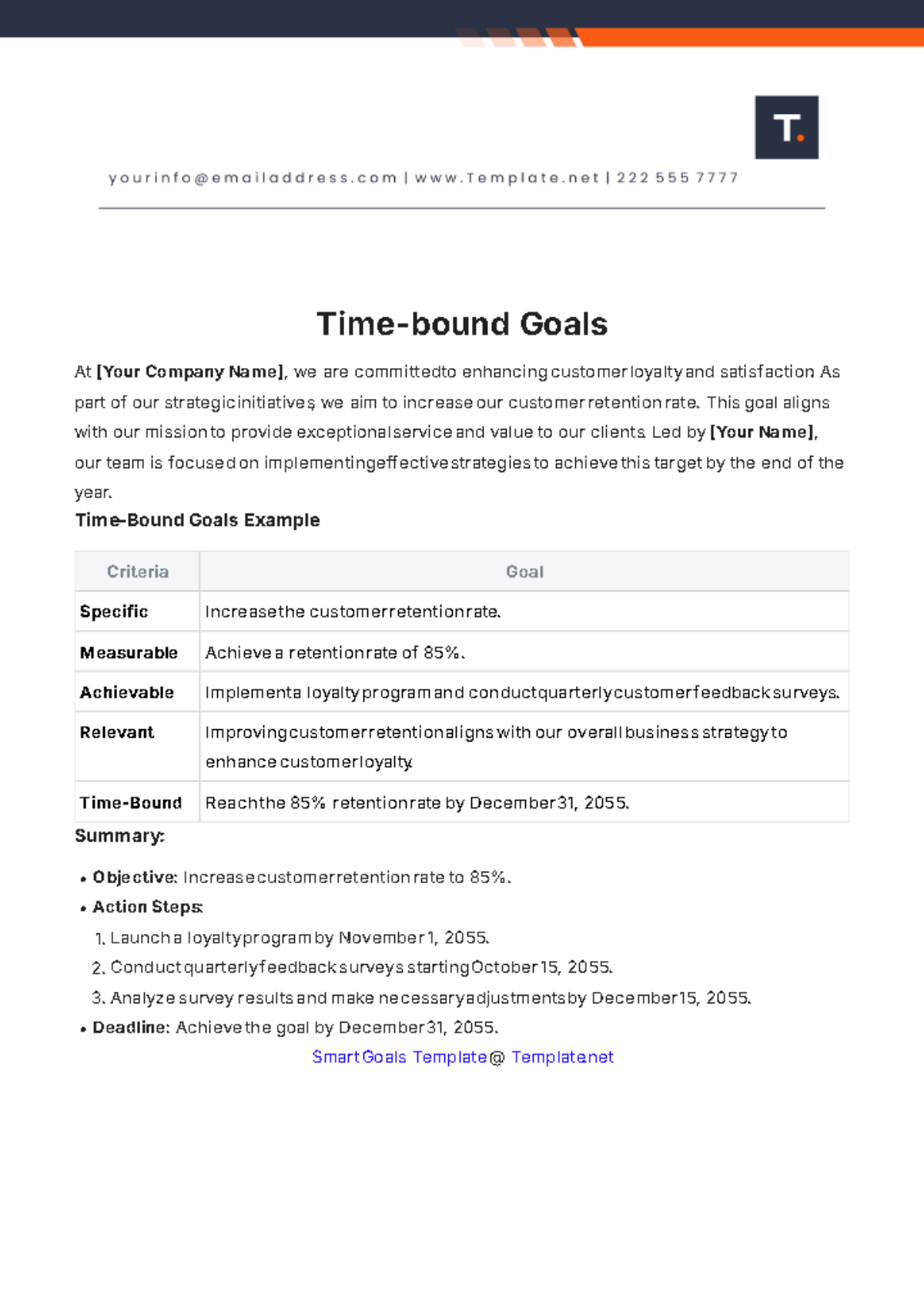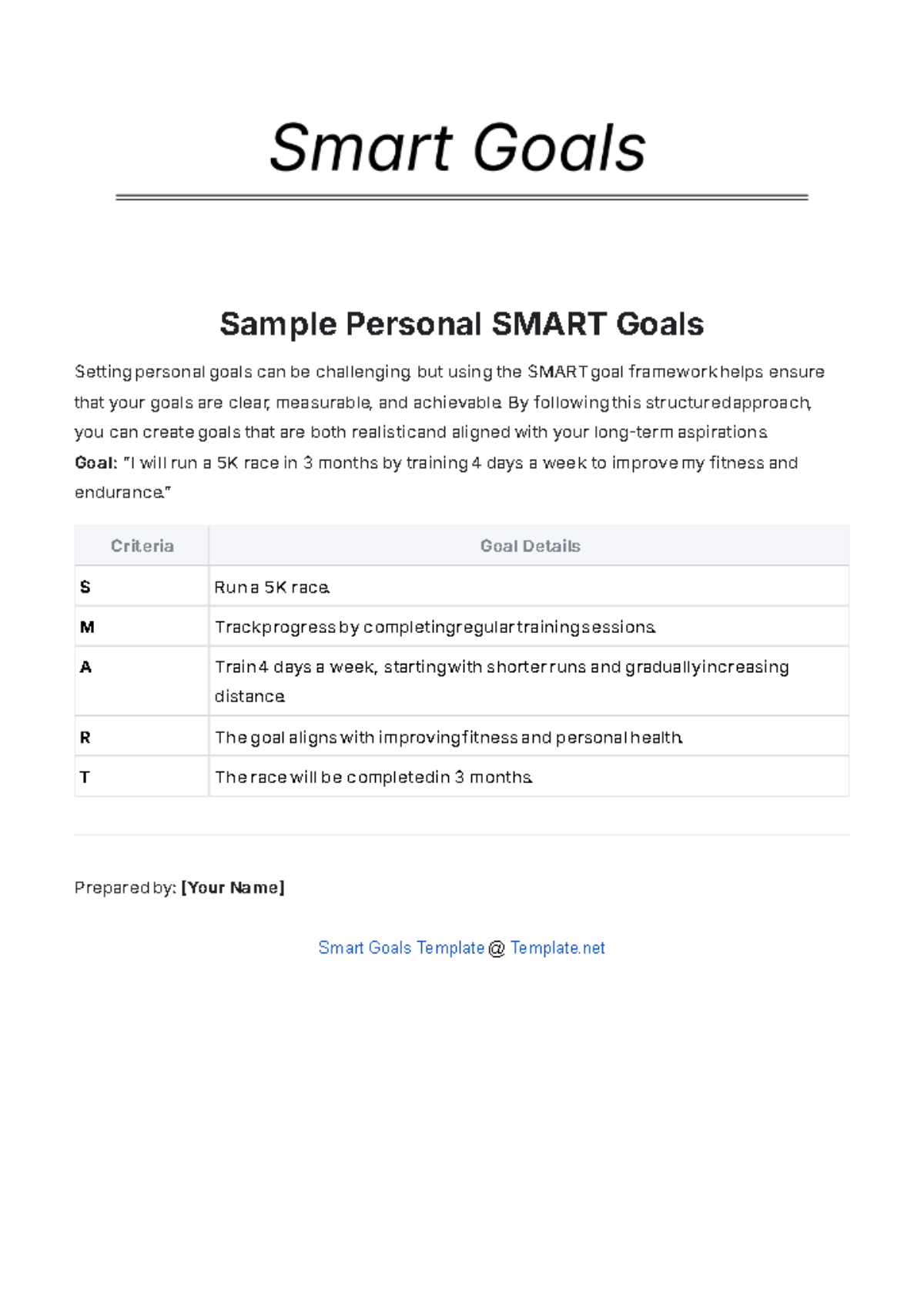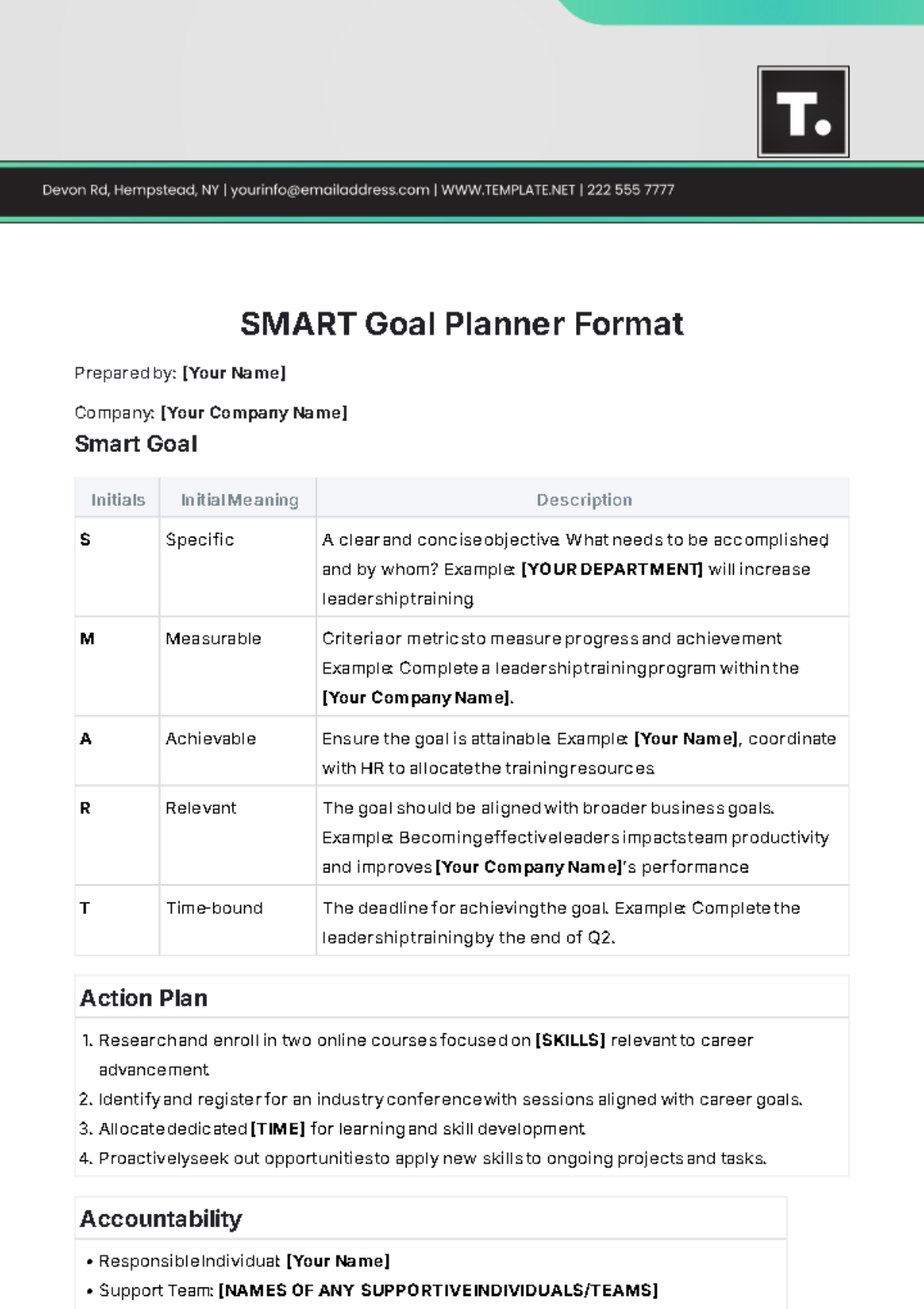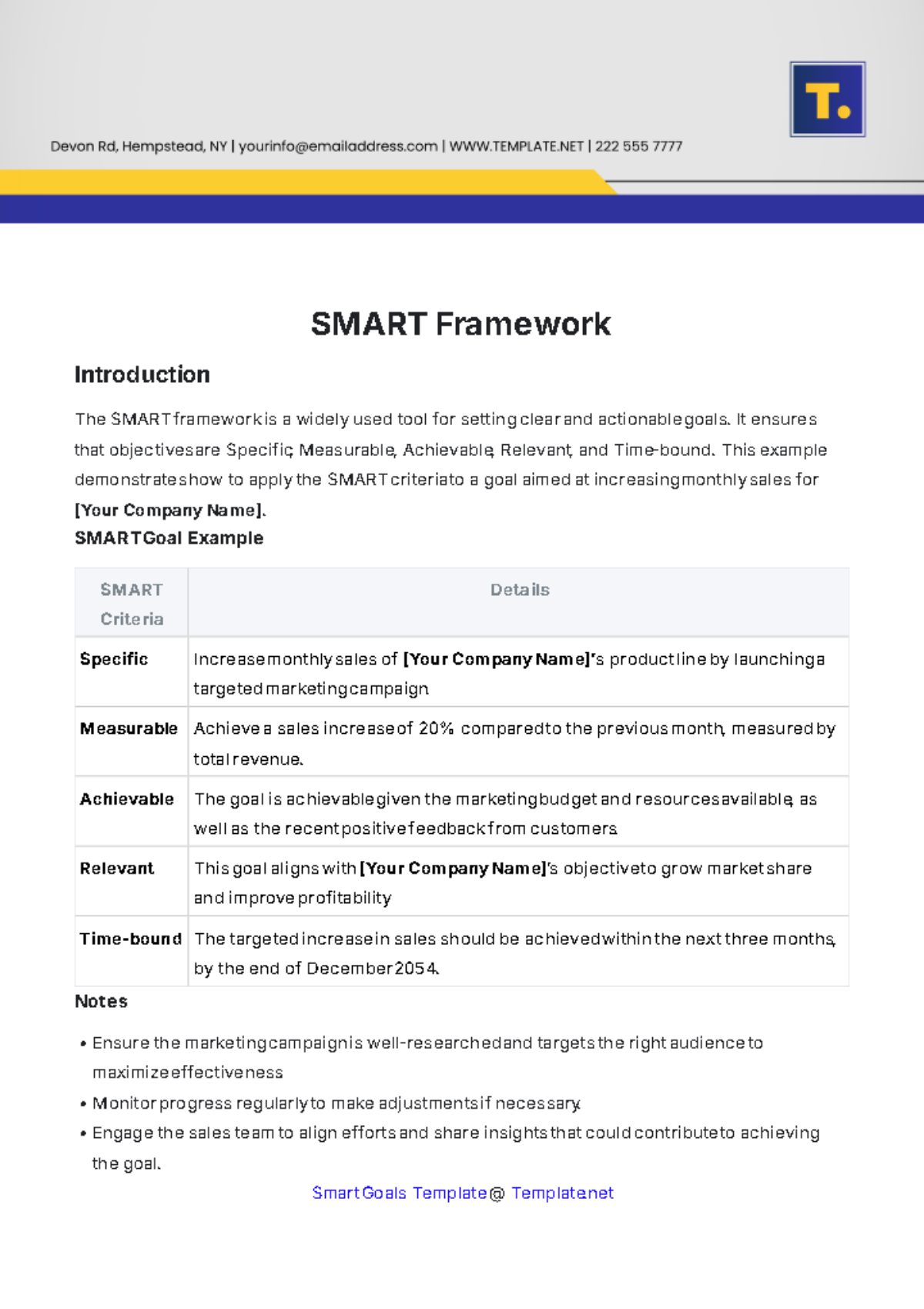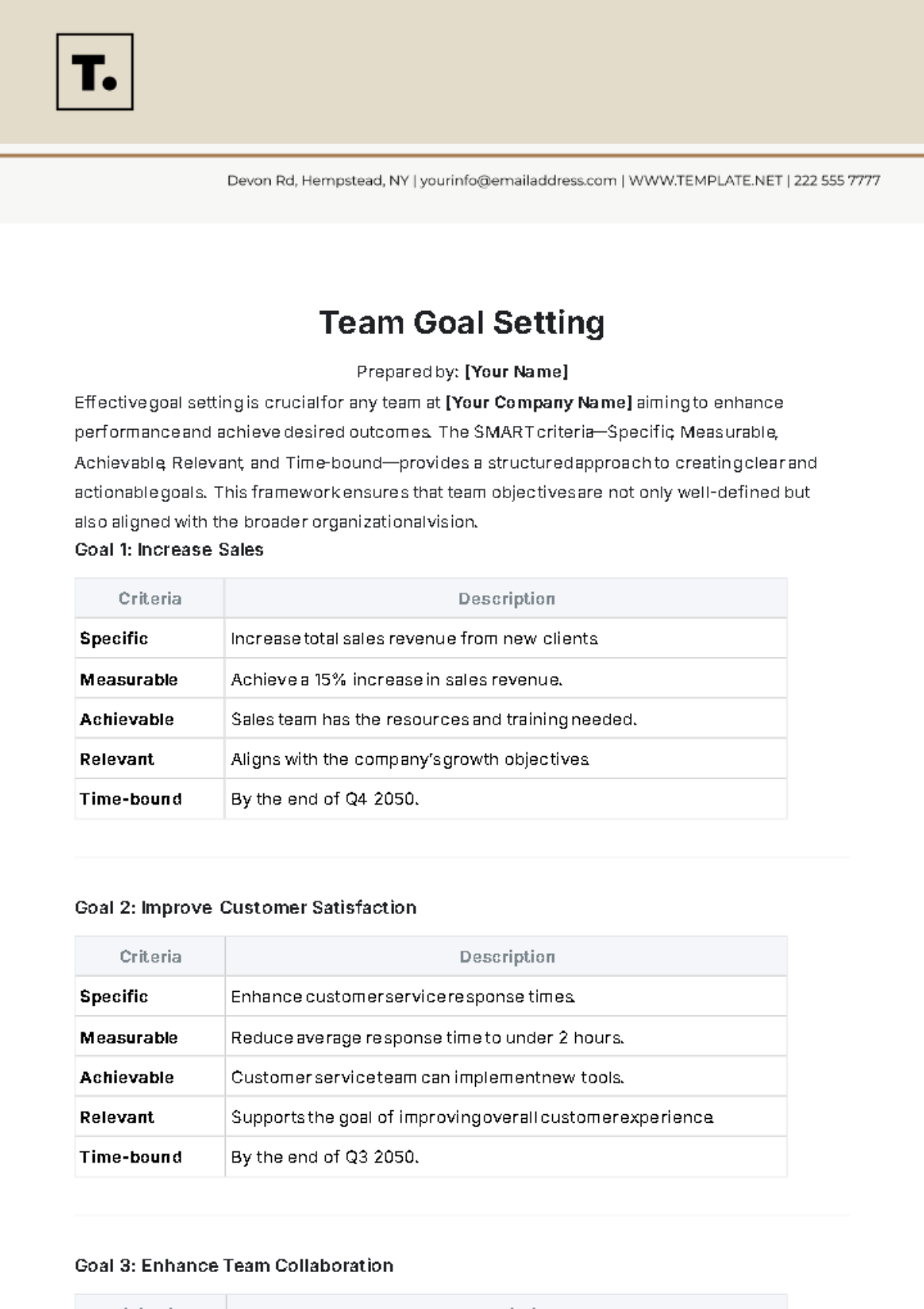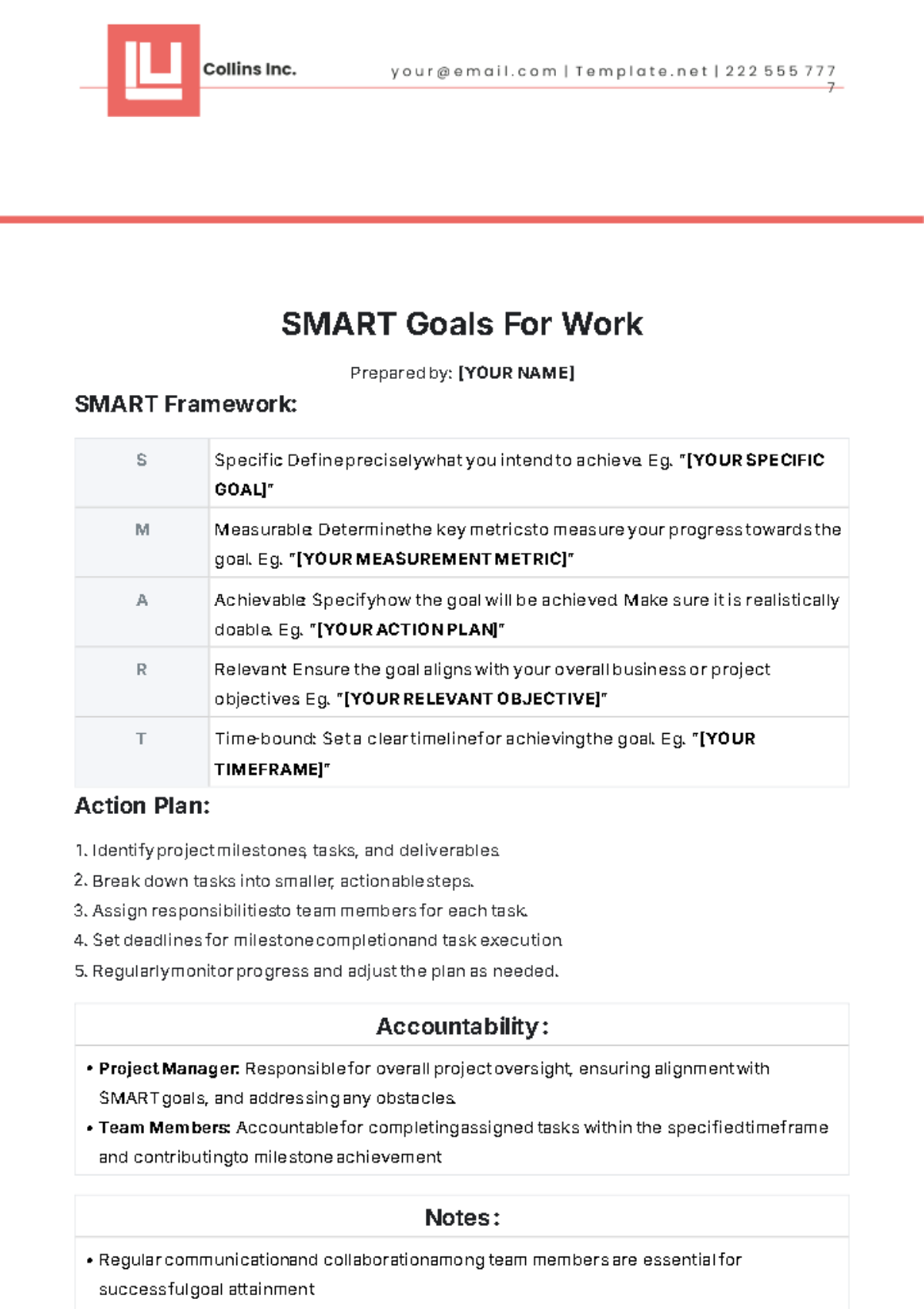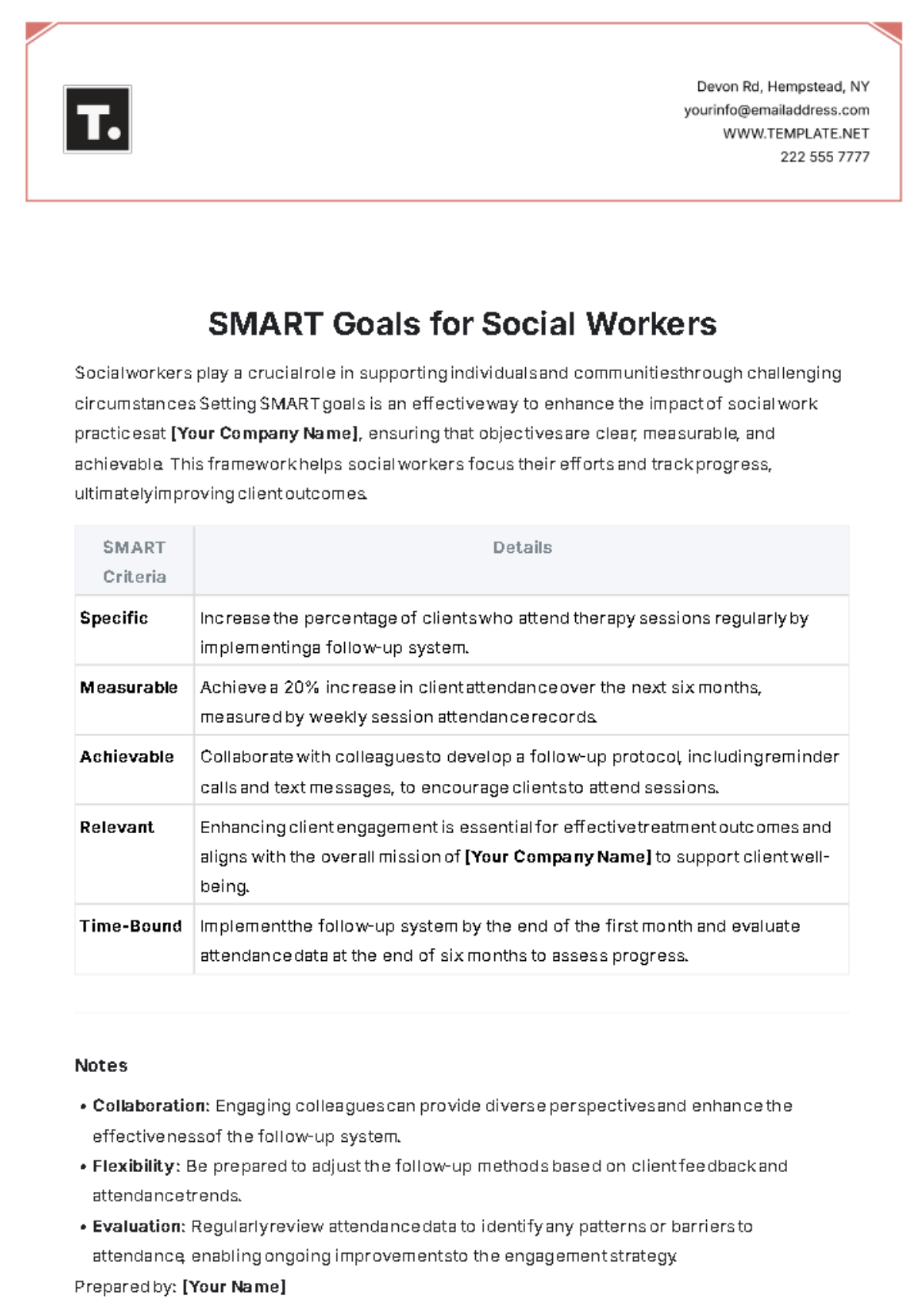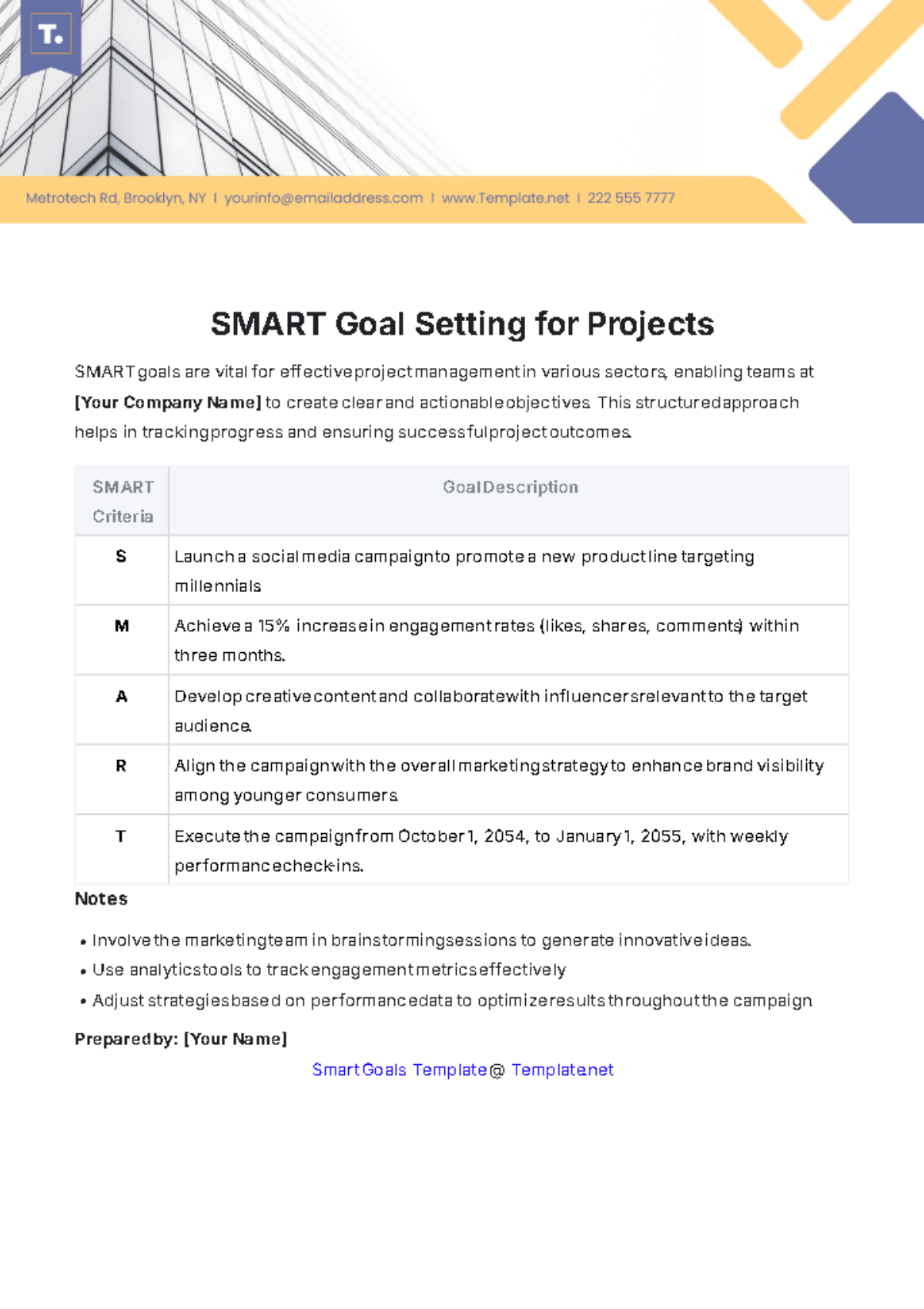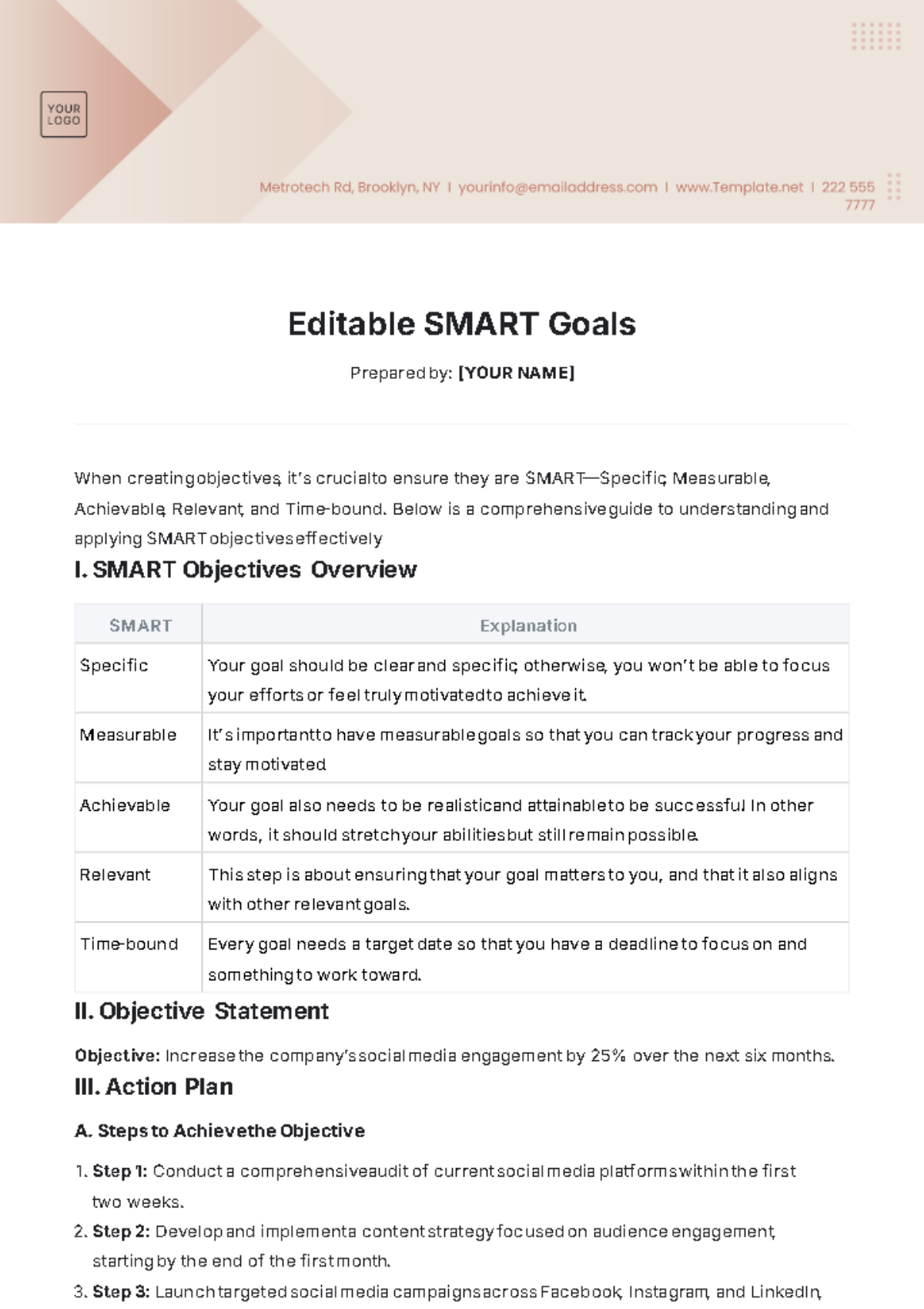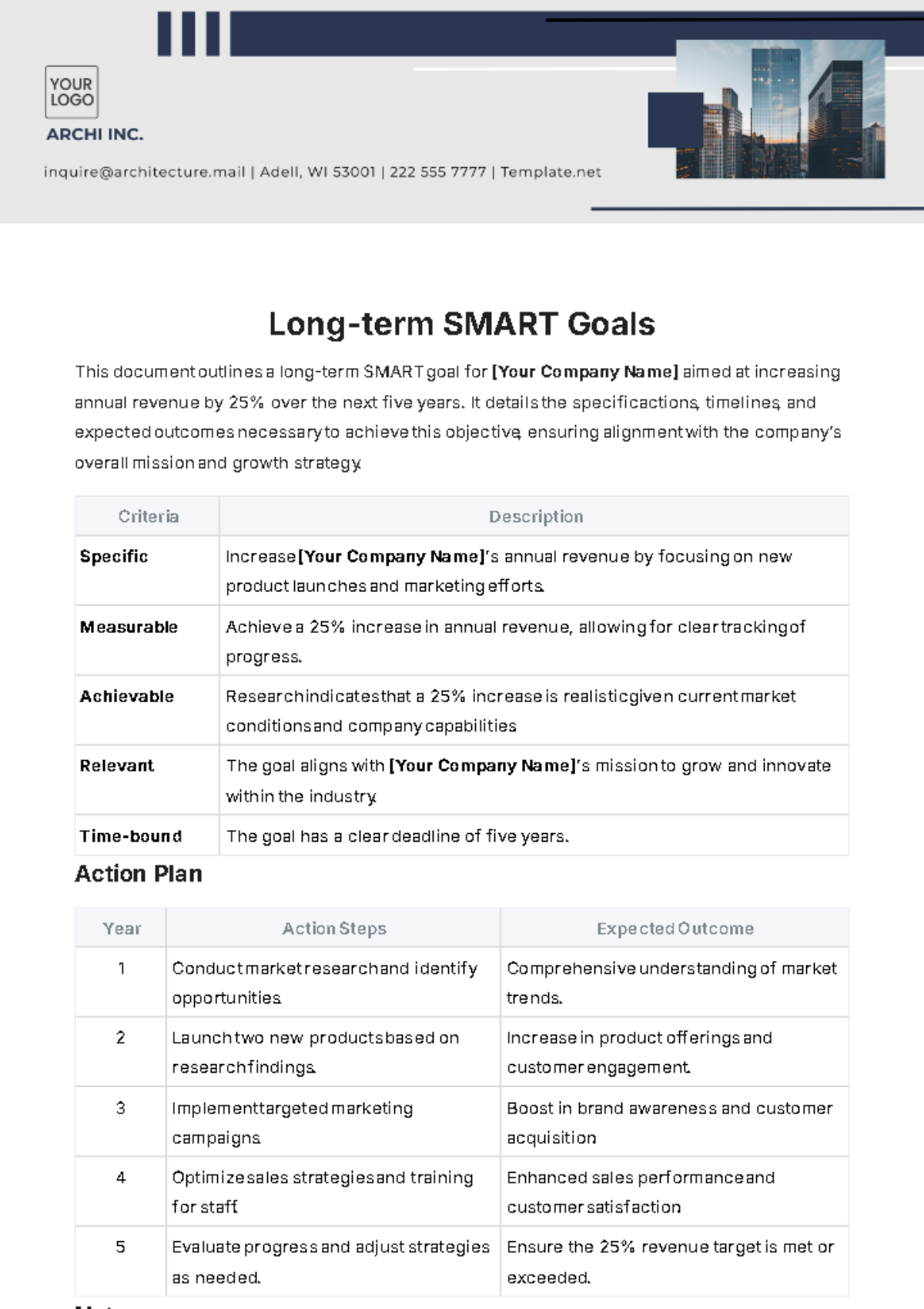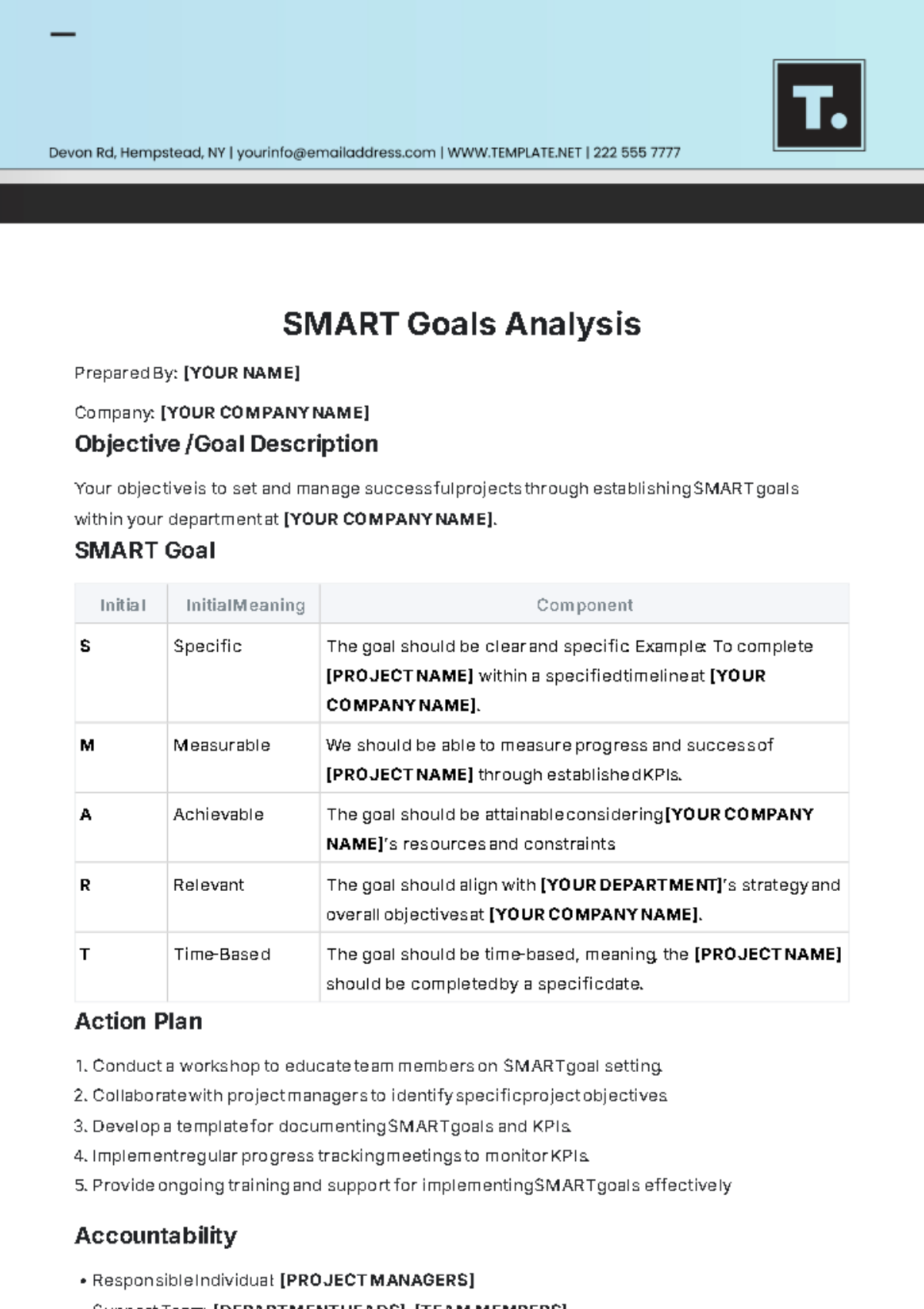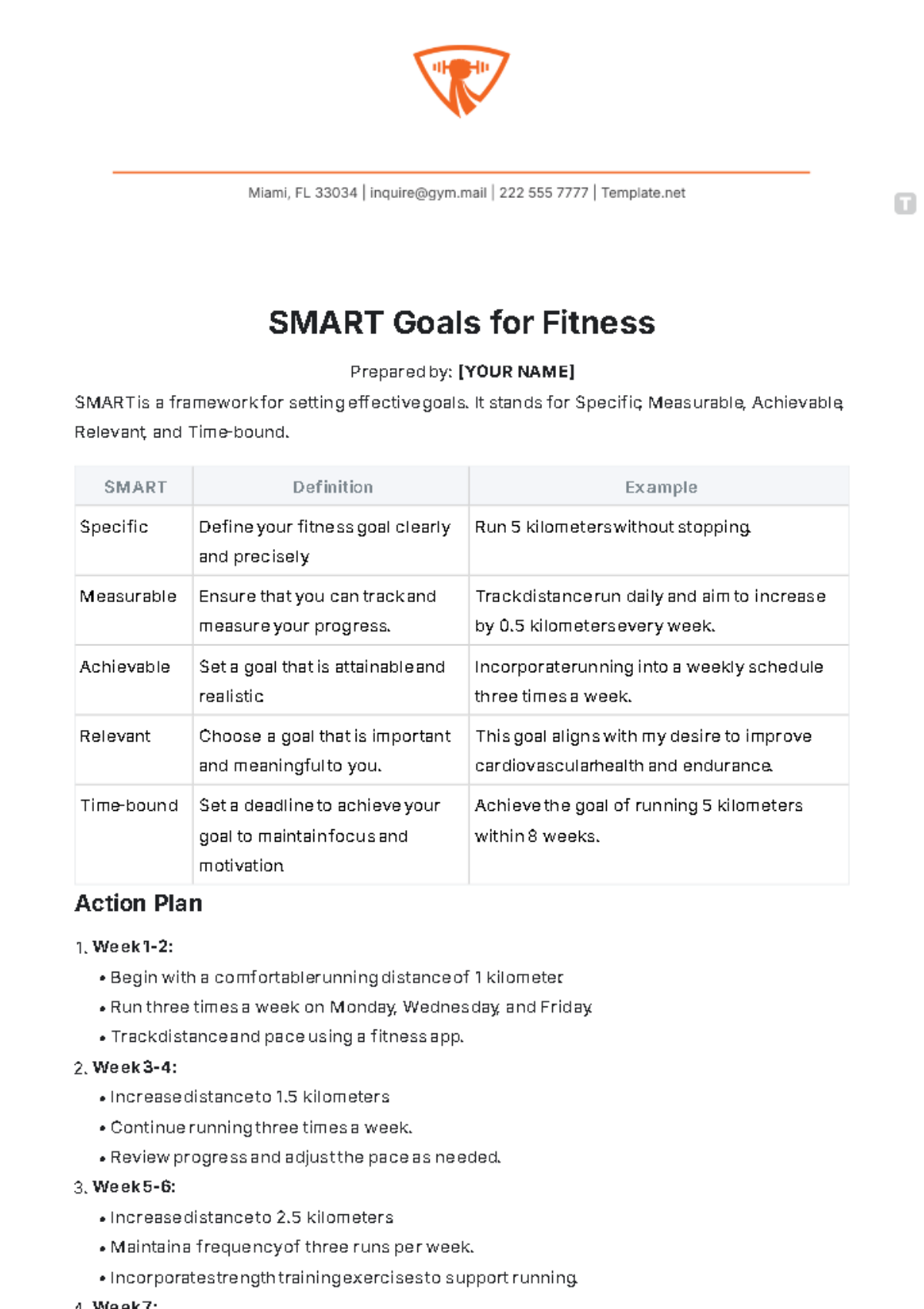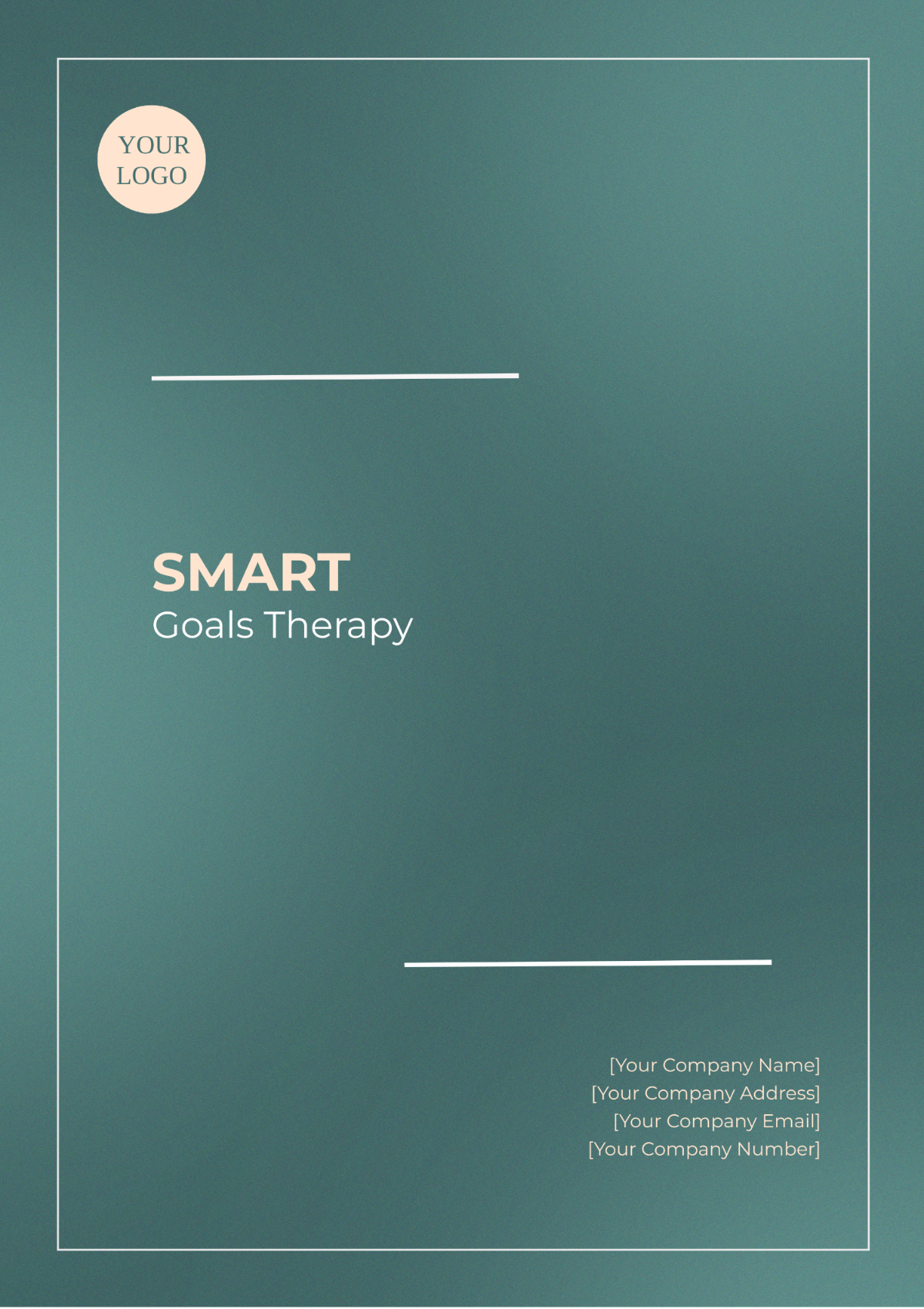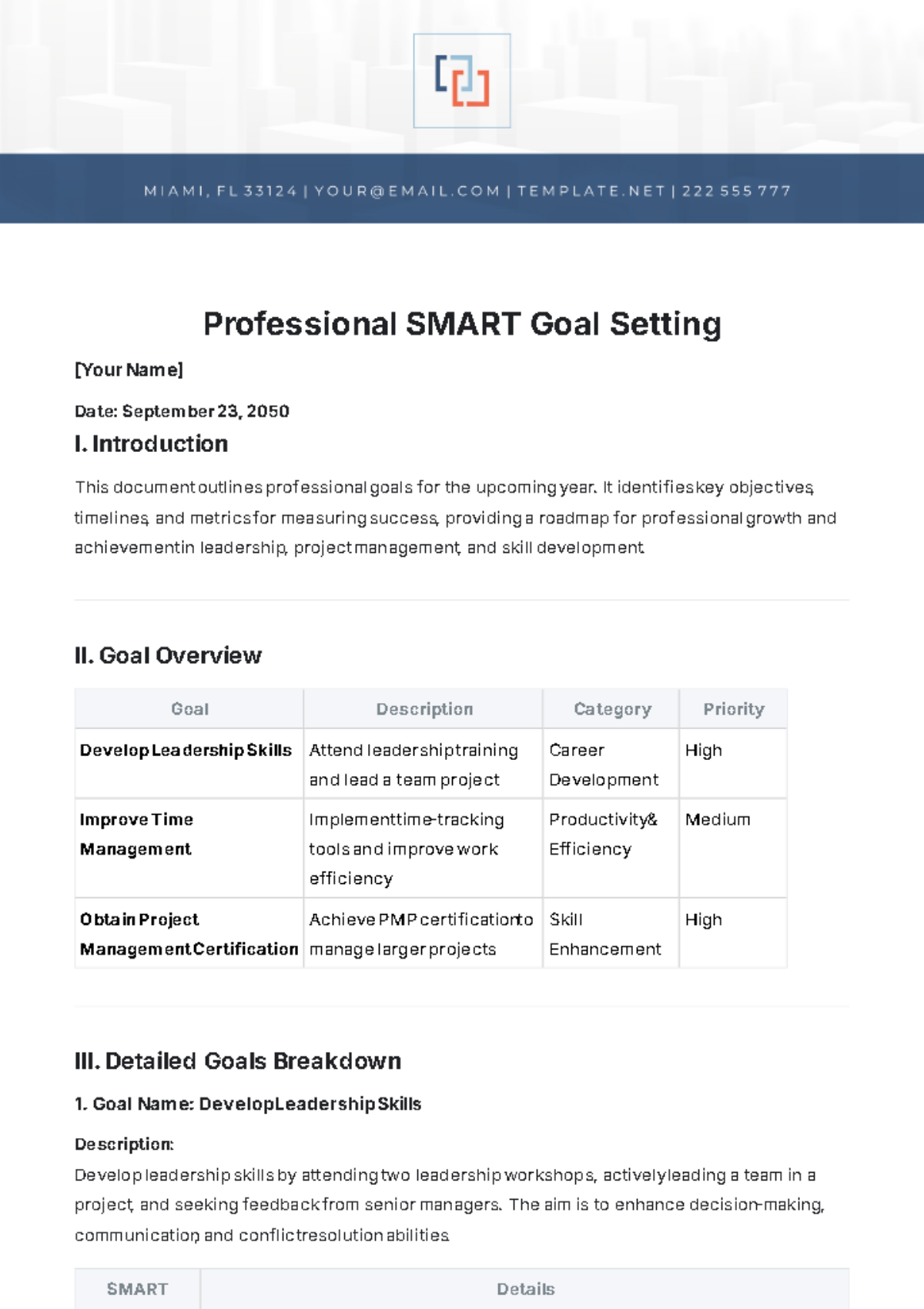SMART Goals for Personal Development
This SMART Goals for Personal Development plan is designed to guide you in systematically improving your public speaking skills. By setting clear objectives, actionable steps, and accountability measures, you will ensure steady progress toward delivering a successful speech at your company’s annual meeting.
SMART | Description |
|---|---|
Specific | Clearly define what you want to achieve. For example, "I want to improve my public speaking skills." |
Measurable | Set criteria for measuring progress. For example, "I will practice public speaking for at least 30 minutes every day." |
Achievable | Ensure the goal is realistic and attainable. For example, "I will enroll in a public speaking course within the next month." |
Relevant | Align the goal with your broader objectives. For example, "Improving my public speaking skills will help me advance in my career." |
Time-bound | Set a clear deadline. For example, "I aim to deliver a successful public speech at my company's annual meeting in six months." |
Action Plan
Enroll in a Public Speaking Course
Deadline: [Deadline]
Research and choose a suitable course that fits your schedule and goals. Register and complete the enrollment process.Daily Practice
Deadline: Ongoing until [Final Deadline]
Dedicate 30 minutes each day to practicing public speaking. Use resources such as online tutorials, practice speeches, and feedback sessions.Join a Toastmasters Club
Deadline: [Deadline]
Find and join a local Toastmasters club to gain more structured practice and feedback.Prepare a Speech for the Annual Meeting
Deadline: One month before the meeting
Create and rehearse a speech tailored to your company's annual meeting. Seek feedback from peers or mentors.Deliver the Speech
Deadline: Date of the annual meeting
Present your speech at the company’s annual meeting.
Accountability
Weekly Check-ins
Responsible Party: [Your Name]
Schedule weekly check-ins with yourself or a mentor to review progress and make any necessary adjustments to the action plan.Feedback Sessions
Responsible Party: [Mentor/Toastmasters Club]
Attend feedback sessions and incorporate suggestions into your practice.Progress Tracking
Responsible Party: [Your Name]
Use a journal or digital tracker to record daily practice sessions and milestones achieved.
Notes
Resources:
List any additional resources needed, such as books, online courses, or speech coaching.
Challenges:
Identify potential challenges and strategies to overcome them. For example, managing time effectively or dealing with stage fright.
Milestones:
Define key milestones to track progress. For example, completing the course, delivering a practice speech, or receiving feedback from a mentor.
Additional Information
1. Success Criteria
Detail how you will determine if the goal has been achieved. For example, "Success will be measured by the positive feedback received from the audience and the level of confidence demonstrated during the speech."
2. Review and Reflect
Plan a review session after the final deadline to reflect on what worked well, what could be improved, and how the skills acquired can be applied to future goals.
3. Adjustment Plan
Outline a plan for adjusting the goal or action steps if necessary. For example, if the initial course does not meet expectations, consider alternative resources or additional training.
